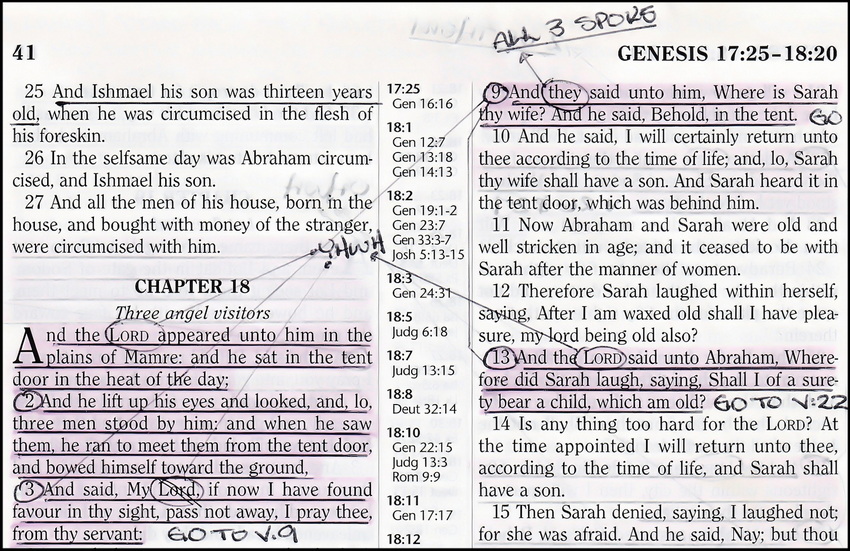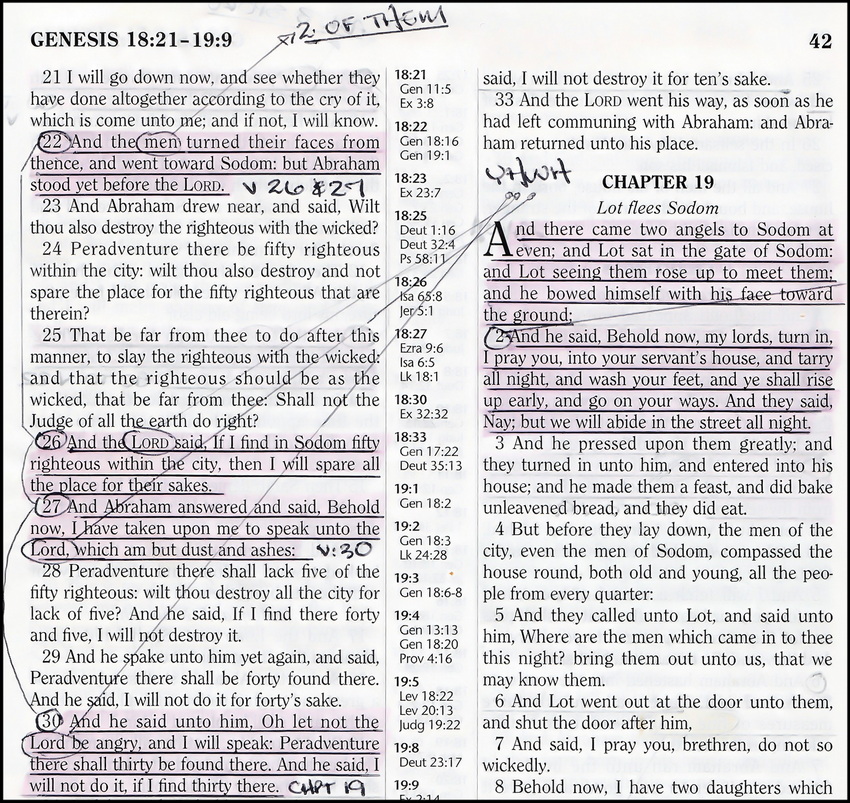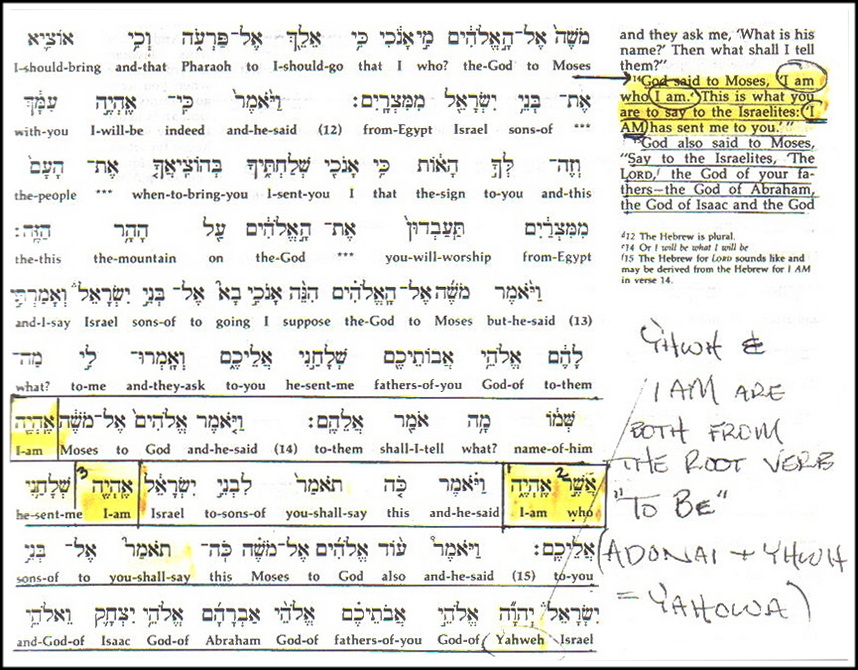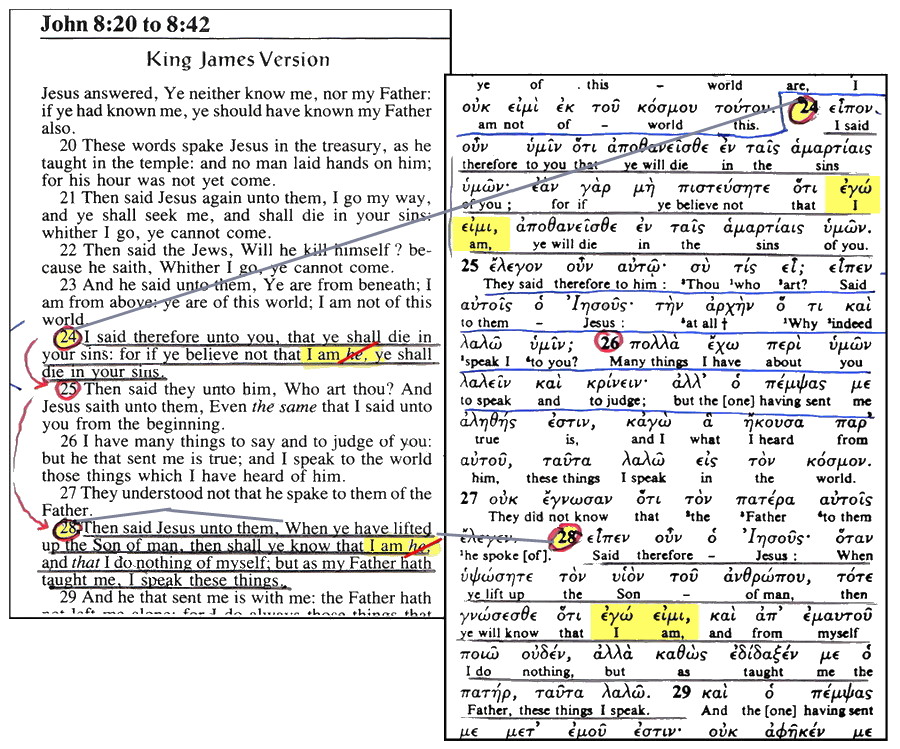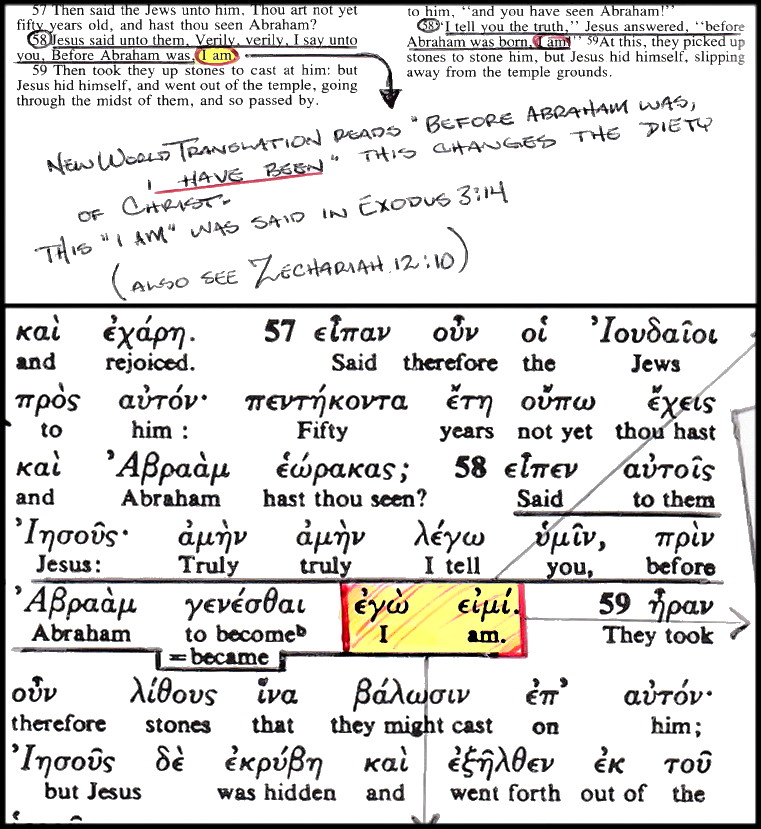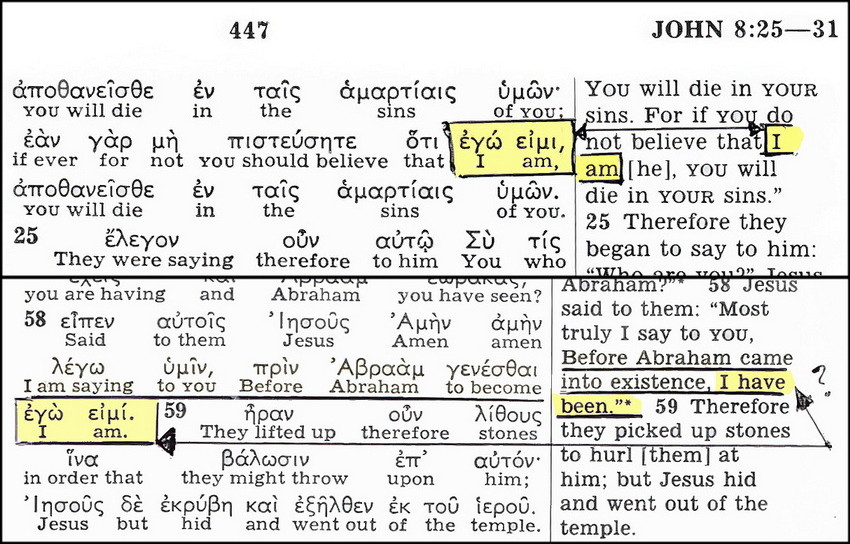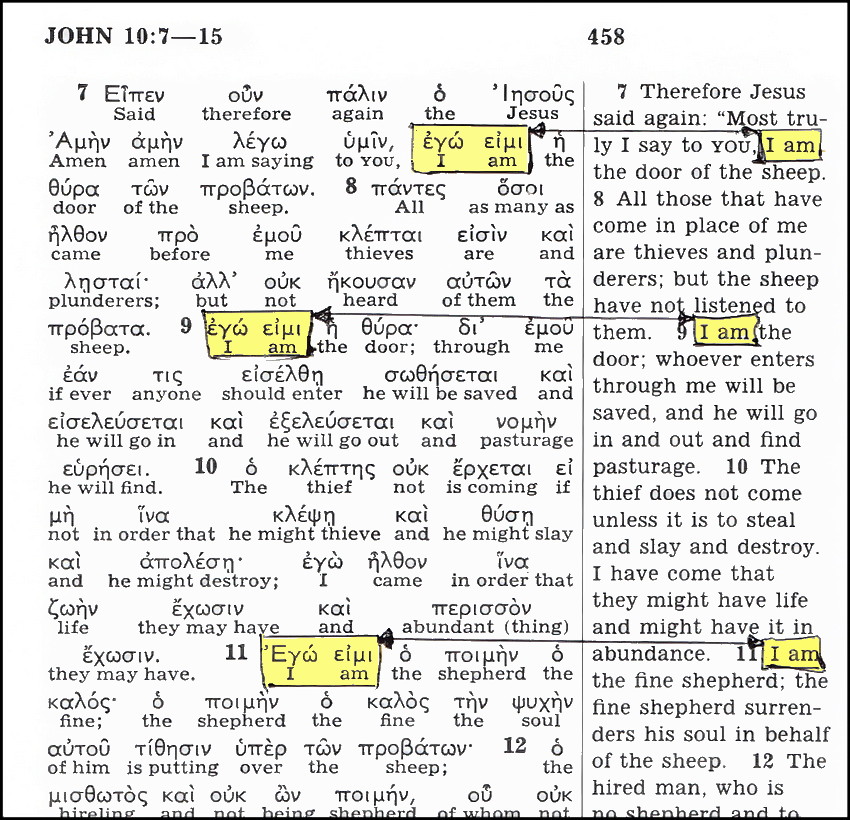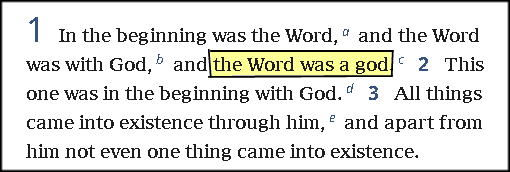This is a shortened, 45-minute version of an almost 3-hour talk where a Muslim woman comes to a saving knowledge of Christ on Avery’s [GodLogic Apologetics] VLOG, or livestream.
Islam
Muhammad & Aisha | The Controversial Child Marriage
Islam: Muhammad & Aisha [ The Controversial Child Marriage ]
If one wishes to see the Hadith’s involved in this topic, see Answering Islam’s posts on the topic:
- Muhammad and Aisha Revisited: An Examination of Muhammad’s Marriage to a Prepubescent Girl And Its Moral Implications
Before linking some of the debates and sources used in the opening video I have to repost this video debate between GODLOGIC and a Muslim:
Muslim Goes Silent When He Has To Admit Allah’s a Pedophile
I say Allah is a pedophile IF the Qur’an is the word of Allah, sent word for word and preserved perfectly by the perfect man [obviously a false god].
I found this video pretty amazing. Firstly, I dig the patience GodLogic has. But the main thing about this video is that when the Muslim goes silent he is testifying to the conscience the Real God has placed in us — and by doing so, he is showing that “Allah” is not God, but an evil creation of the groupthink of Islam inspired by demons. When the truth comes in, the cover up begins. The long silence proves this:
- For His invisible attributes, that is, His eternal power and divine nature, have been clearly seen since the creation of the world, being understood through what He has made. As a result, people are without excuse. (Romans 1:20)
Thirdly, the funny line in the video is this: “No Hitta – No Iddah” You will see what I mean. This seems long and drawn out, but it is not if you understand what is going on.
Okay, here are some resources (mainly video debates or discussion about Islam’s position of Allah blessing pedophiles).
DEBATE: Is Child Marriage Acceptable? Islam vs Christianity (YOUTUBE) – 2-hours long
- Inspiring Philosophy’s review of his debate – almost 3-hours long
- Inspiring Philosophy and Apostate Prophet review the debate – just over 3-hours
FIERY DEBATE Was Muhammad’s Marriage to Aisha Ethical? | David Wood Acts17Apologetics Vs Kenny Bomer (YOUTUBE) – 2 1/2 hours
HEATED DEBATE Was Muhammad’s Marriage to Aisha Immoral? Acts17Apologetics David Wood Vs Kenny Bomer (YOUTUBE) – 2 hours
Too Young to Wed: The Secret World of Child Brides (YOUTUBE) – 11-minutes
Act17Apologetics 2-page PDF tract (tri-fold)
Struggling With the Trinity | Some Examples & Responses
JUMP to the update showing Allah and the his word (the Qur’an) got it wrong
(Big Update Today – 12/08/2023)
Jump To “The Eastern Gate” (Ezekiel 44:1-3)
DENNIS PRAGER
From the video description:
In an honest dialogue via a caller to the show, Dennis Prager tells us his lack of understanding of what seems so clear to Christians — MIND YOU, it is still a mystery, but not self-referentially false. In other words, coherent.
Two quick explanations are from two men I respect:
Here is a four part series by theologian Wayne Grudem:
See his books for more doctrinal specifics:
✦ Systematic Theology: An Introduction to Biblical Doctrine
✦ Bible Doctrine: Essential Teachings of the Christian Faith

MANY YEARS AGO when working at Whole Foods I got in a conversation with co-worker. He said he would read what I wrote for him regarding the Trinity. HERE IS THAT LETTER. Another response in a debate from a couple years before that letter to a co-worker may help as well, HERE.
DAVID WOODS UPDATE
ISLAM
- “I understand a… 7th century Arabian caravan robber misunderstanding who is in the Trinity. I understand that. [….] It’s very weird that ‘god’ and his word misunderstood that.”
The fuller interview by Babylon Bee can be found HERE.
AN OLD POST RE-POSTED
SOME CULTS
The LDS Church teaches that “Elohim” properly refers to Heavenly Father, and that “Jehovah” refers to Jesus. While Mormons believe that both Elohim and Jehovah are “united in purpose”, Mormonism claims that “Elohim” and “Jehovah” are actually two separate exalted beings. This is significant, because it would mean that there are actually numerous “gods”—more than just one! But Christians claim that Jehovah (Or Yahweh) and Elohim are the same being, the One True God, who is uncreated and unchanging. Christianity teaches that there only ever has been and will be One Creator God. If Christians are correct, then the notion of eternal progression and exaltation are abominable and idolatrous. The idea that the Father and Son progressed to their current position is a blasphemous claim to the Christian! Therefore, the true nature of Jehovah and Elohim is a significant question! So what does the Bible teach? Does the Bible indicate that Elohim and Jehovah are two different gods “united in purpose”? Or does Scripture teach that Jehovah and Elohim are different names for the same being?
This is an update to an old post from my free blog from many yearn ago. It deals with certain aspects of Mormon’s and Jehovah’s Witness’s understanding of a “bifurcation” (of sorts). Enjoy, I may re-edit this in the weeks coming. This edit is a shortening of the older debate (which itself references an even older discussion. I am thinking this was the late 90’s or early 2000s):
TRINITY
I recommend a book that will assist you in your understanding of Bart Ehrman, it is entitled, Misquoting Truth: A Guide to the Fallacies of Bart Ehrman’s Misquoting Jesus. Learning possibility aside, you believe that YHWH represents Jesus, and Elohim represents Heavenly Father, right? I will elucidate with an old debate:
You Jeff, are not arguing against me when I speak of sex in heaven, you are speaking or arguing against personalities further up the LDS-chain of command than yourself (I have posted this before):
Joseph Fielding Smith Jr., Doctrines of Salvation, Vol.2, p.48:
The Father has promised us that through our faithfulness we shall be blessed with the fulness of his kingdom. In other words we will have the privilege of becoming like him. To become like him we must have all the powers of godhood; thus a man and his wife when glorified will have spirit children who eventually will go on an earth like this one we are on and pass through the same kind of experiences, being subject to mortal conditions, and if faithful, then they also will receive the fulness of exaltation and partake of the same blessings. There is no end to this development; it will go on forever. We will become gods and have jurisdiction over worlds, and these worlds will be peopled by our own offspring. We will have an endless eternity for this.
An endless eternity of celestial sex is what that last sentence meant. Okay, I will leave you to argue with your ex-president in an LDS book Doctrines of Salvation.
How many Jesus’ are there?? Lets do a little Bible study in Genesis. I will post some scripture from Genesis 18 and 19. The pink highlights are what we are going to read (pink is for Jehovah’s Witnesses, green is for Mormons… I will now have to add a bit of green to these verses as I can use them with LDS).
(CLICK TO ENLARGE)
And the FINISHER
So again, with your understanding of who Elohim and YHWH is, as before, your theology is less fit for what the bible displays as clearly Trinitarian. How can Jesus be three people, and then also speak to Himself in heaven while on earth? I mean, you say YHWH is Jesus, orthodox Christianity says this is one name for God (1x1x1=1), Elohim is another.
No Christian doctrine depends on the longer version of the 1 John:7-8. It never has, and Ehrman doesn’t reject the Trinity for this verse either. He does so because he is a philosophical naturalist. Matthew 28:19-20 states the concept of one God (“in name,” GK singular) expressed in three persons (“of the Father and of the Son and of the Holy Spirit”) just as clearly as those words in 1 John.
According to you Jesus is “a” God, as well as other “persons before Heavenly Father as well as after Heavenly Father. However, the Old Testament states:
- “See now that I, I am He, and there is no God besides Me” (Deuteronomy 32:39 NASB)
- “Before Me there was no God formed, and there will be none after me” (Isaiah 43:10 NASB)
- “Is there any God besides Me, or is there any other Rock? I know of none” (Isaiah 44:8 NASB)
- “I am the Lord, and there is no other; besides Me there is no God” (Isaiah 45:5 NASB)
However, Heavenly Father’s parents on another earth may themselves not have achieved exultation, whereas a person who at one time (on another planet in the myriad of Mormon worlds with possible gods that inhabit them) could have owned a brothel, but later was sealed in a temple ceremony and repented of his way may be an even more powerful God than Heavenly Father. Odd.
Just in case people here do not understand what Bot is doing, he is arguing against one infinite God and arguing for an infinite amount of finite Gods.
DIETY OF CHRIST
According to LDS theology, Jesus did not exist at one point in history… at least until Heavenly Father had a bit of foreplay with one of his wives and maybe a martini or two (Brigham Young was the only distributor of alcohol in Utah for some time… he’s exulted, right?) and a long night of hot – steamy… well, you get the point, Jesus was born. This is not the belief of any Christian, the apostles, the church fathers, and the like. Only LDS believe this, not the church even for the first 100 years believed this, as the Scriptures make clear. Jesus created the space/time continuum, he was not pre-dated by DNA, matter, gods, or the like.
Heavenly Father didn’t create the eye, or the pancreas, these predate Heavenly Father, and were passed on to him via his parents “sexing it up.” And the DNA for eyes and pancreas’s were passed to them via an act of sex, and so on ad-infinitum.
Jesus and Heavenly Father were born into a cosmos that enforced its natural laws (both physical and moral) on Jesus and Heavenly Father, whereas these forces were created by God and didn’t pre-date God. The former is not deity, the later is.
IRR has a good short article where they answer the following:
- The Hebrew word Elohim is grammatically a plural form, and in a couple hundred occurrences in the Old Testament does mean “gods.” However, about 2,600 times Elohim functions as a singular noun. We know this for four reasons
Here are the four reasons noted:
First, in these passages it is very common for the noun to take singular pronouns, verbs, and descriptive nouns. If you read a sentence saying “Elohim is good,” you know that Elohim in this sentence must be singular because the verb is singular (“is”). The same thing applies to expressions like “Elohim our Father” or “Elohim sits on his throne.” We see this use of singular words in relation to Elohim right in the first verse of the Bible: “In the beginning God [Elohim] created the heavens and the earth” (Gen. 1:1). The verb “created” in this verse is singular, not plural.
Second, the Old Testament frequently uses the word Elohim as a name or title for Yahweh (Jehovah), who is of course a singular being. For example, Genesis 2:4 refers to the Creator as Yahweh Elohim (Jehovah God). Over half of the verses in the Old Testament that use the name Elohim also refer to him directly as Yahweh.
Third, the ancient Greek translation of the Old Testament known as the Septuagint translated the Hebrew word Elohim in these contexts as “God,” not “gods.” For example, Genesis 1:1 in the Septuagint says, “In the beginning God [theos, the singular word for “God”) made the heavens and the earth.”
Fourth, the New Testament, written in Greek, also uses the singular form theos when quoting Old Testament texts referring to Elohim. For example, Jesus quoted Deuteronomy 6:13 as saying, “You shall worship the Lord your God and serve him only” (Matt. 4:10). In the Hebrew text, Deuteronomy 6:13 says Elohim. In both the Septuagint and in the quotation in Matthew, the Greek word used is the singular theos.
These four facts prove beyond reasonable doubt that Genesis 1:1 is referring to a single God, not a group of gods, when it speaks about Elohim creating the world.
In another article by IRR, they go on to enforce the above thinking:
…There are over 700 verses in the Old Testament that show Jehovah (LORD) and Elohim (God) are the same God. Many of these verses also state that Jehovah is the only Elohim. Following are a few examples.
Isaiah 43:10,11. Ye are my witnesses, saith the LORD [Jehovah] and my servant whom I have chosen; that ye may know and believe me, and understand that I am he: before me there was no God [Elohim] formed, neither shall there be after me. I, even I, am the LORD [Jehovah]; and beside me there is no savior.
Note from these verses that there are several things which God wants us to know, believe, and understand: (1) There is only one God (Elohim) and Jehovah is that one true God. (2) There were no Elohims formed before Jehovah. This means that Jehovah does not have a Father. That is, no God (Elohim) preceded him, by whom He was procreated. (3) There will be no Elohims formed after Jehovah. Some say that Isaiah 43:10,11 is talking about idols. But that cannot be true for there certainly have been idols and false gods made and worshiped since this passage was written. Therefore, when God said no gods would be formed after him, it must mean no real, true Gods.
Isaiah 44:6,8. Thus saith the LORD [Jehovah the King of Israel, and his redeemer the LORD of hosts; I am the first, and I am the last; and beside me there is no God [Elohim] … Fear ye not, neither be afraid: have not I told thee from that time, and have declared it? ye are even my witnesses. Is there a God [Elohim] beside me? yea, there is no God [Elohim] I know not any.
The emphatic “Thus saith Jehovah” in the above verse commands our attention. The following points are made under authoritative declaration: (1) Jehovah is the first Elohim and the last Elohim. There can be only one first and only one last. Again, this rules out the possibility of any other Gods existing throughout all of eternity past and all of eternity future. It also again shows that Jehovah and Elohim are not different Gods. (2) Jehovah is the only God (Elohim) that exists. This again rules out the possibility of other sovereigns existing. (3) No reasonable person would challenge the intellect of God. When He says that He does not know of something, this certainly does not imply any limitation in the scope or capacity of His knowledge. On the contrary, when He says He does not know of something, we may be assured this means that thing does not exist. So it is plain that when God says He does not know of any other Gods it is because they do not exist. Thus, these verses affirm in the clearest possible terms that no other Gods exist, nor will exist, throughout all of time and space, in this universe or any other.
[….]
As we have seen from the Old Testament Scriptures above, it is surely wrong to say that Elohim, Jehovah, and the Holy Ghost are separate Gods. The Bible states emphatically and repeatedly that there is only one God, it declares that Elohim is Jehovah, and it uses the names Elohim, Jehovah, and Adonai interchangeably. The Bible also teaches that the Father is God, the Son is God, and the Holy Ghost is God (Acts 5:3,4). The awesome but inescapable conclusion is that God is Tri-une in nature. How gracious that He has stooped to reveal Himself to us in His infallible Word. How crucial that we interpret His Word accurately.
One of the best books I have read on the topic of the Trinity is by an ex-Oneness Pentecostal, Robert Bowman. Herein is some discussion on this “triuness” of God in relation to Jehovah’s Witnesses (J-DUBS):
The rest of this book will be concerned with the biblical material relating to the Trinity, considering the arguments advanced by JWs to show that it is unbiblical.
We begin with the biblical teaching that there is one God. The JWs affirm that monotheism is the biblical teaching (p. 12), citing several Scriptures in support (p. 13). And trinitarians could not agree more. There is only one God, and this God is one. The oneness of God is the first plank in the trinitarian platform. For this reason I would agree with the booklet’s argument that the plural form elohim for God in the Old Testament cannot be evidence of the Trinity (pp. 13-14).
The Trinity and the Oneness of God
But two problems need attention. First, JWs claim that the Bible’s affirmations of monotheism mean “that God is one Person—a unique, unpartitioned Being who has no equal” (p. 13). As has already been explained, trinitarians do not regard the three persons as “partitions” of God, or the Son and Spirit as beings outside God yet equal to him. Indeed, if “person” is defined to mean an individual personal being, then trinitarians will agree that in that sense “God is one Person.” Thus, in arguing as if these truths contradicted the Trinity, the JWs show they have misconstrued the doctrine. In fact, that God is one “Person” in this sense does not prove that he is not also three “persons” in the sense meant by trinitarians.
Second, biblical monotheism does not simply mean that the being of the Almighty God is one being. That is true enough, but the Bible also teaches simply that there is one God. The Bible is quite emphatic on this point, repeating it often in both the Old Testament (Deut. 4:35, 39; 32:39; 2 Sam. 22:32; Isa. 37:20; 43:10; 44:6-8; 45:5, 14, 21-22; 46:9) and the New Testament (Rom. 3:30; 16:27; 1 Cor. 8:4, 6; Gal. 3:20; Eph. 4:6; 1 Tim. 1:17; 2:5; James 2:19; Jude 25). And the very meaning of the word monotheism is the belief in one God.
It is therefore important to note that the JWs flatly deny this most basic of biblical teachings. Although they admit that there is only one Almighty God, they claim that there are, in addition to that God, and not counting the many false gods worshiped by idolaters, many creatures rightly recognized in the Bible as “gods” in the sense of “mighty ones” (p. 28). These “gods” include Jesus Christ, angels, human judges, and Satan. The JWs take this position to justify allowing the Bible to call Jesus “a god” without honoring him as Jehovah God.
The question must therefore be asked whether Witnesses can escape the charge that they are polytheists (believers in many gods). The usual reply is that while they believe there are many gods, they worship only one God, Jehovah. But this belief is not monotheism, either. The usual term for the belief that there are many gods but only one who is to be worshiped is heno theism.
The more important question, of course, is whether the Bible supports the JWs’ view. The explicit, direct statements of the Bible that there is only one God (cited above) cannot fairly be interpreted to mean that there are many gods but only one who is almighty, or only one who is to be worshiped, or only one who is named Jehovah. There is only one Almighty God Jehovah, and he alone is to be worshiped—but the Bible also states flatly that he is the only God.
More precisely, the Bible says that there is only one true God (John 17:3; see also 2 Chron. 15:3; Jer. 10:10; 1 Thess. 1:9; 1 John 5:20), in contrast to all other gods, false gods, who are not gods at all (Deut. 32:21; 1 Sam. 12:21; Ps. 96:5; Isa. 37:19; 41:23-24, 29; Jer. 2:11; 5:7; 16:20; 1 Cor. 8:4; 10:19-20). There are, then, two categories of “gods”: true Gods (of which there is only one, Jehovah) and false gods (of which there are unfortunately many).
The JWs, however, in agreement with most antitrinitarian groups today that claim to believe in the Bible, cannot agree that there is only one true God, despite the Bible’s saying so in just those words, because then they would have to admit that Jesus is that God. Therefore, they appeal to a few isolated texts in the Bible that they claim honor creatures with the title gods without implying that they are false gods. We must next consider these texts briefly.
Are Angels Gods?
There are two kinds of creatures that the JWs claim are honored as gods in Scripture—angels and men. We begin with angels. The usual prooftext in support of this claim is Psalm 8:5, which the NWT renders, “You also proceeded to make him [man] a little less than godlike ones.” The word translated “godlike ones” here is elohim, the usual word for “God,” but (because plural) also translatable as “gods.” Since Hebrews 2:7 quotes this verse as saying, “You made him a little lower than angels” (NWT), the Witnesses conclude that Psalm 8:5 is calling angels “gods.”
There are numerous objections to this line of reasoning, only some of which can be mentioned here. First, it is questionable that in its original context elohim in Psalm 8:5 should be understood to refer to angels and translated “gods” or “godlike ones.” This is because in context this psalm is speaking of man’s place in creation in terms that closely parallel Genesis 1. Psalm 8:3 speaks of the creation of the heavens, moon, and stars (cf. Gen. 1:1, 8, 16). Verse 4 asks how God can consider man significant when compared with the grandeur of creation. The answer given is that man rules over creation—over the inhabitants of the land, sky, and sea (vv. 6-8; cf. Gen. 1:26-28). What links this question and answer in Psalm 8 is the statement that God made man “a little lower than elohim,” which parallels in thought the Genesis statement that man was created “in the image of elohim,” that is, in the image of God (Gen. 1:26-27). This makes it quite reasonable to conclude that in its own context Psalm 8:5 is meant to be understood as saying that man is a little lower than God, not angels.
If this view is correct, why does Hebrews 2:7 have the word angels rather than God? The simple answer is that the author of Hebrews was quoting from the Septuagint, a Greek translation of the Old Testament prepared by Jewish scholars and in common use in the first century. The fact that the writer of Hebrews quoted the Septuagint does not imply that the Septuagint rendering he quoted was a literal or accurate word-for-word translation of the Hebrew text (after all, “angels” is certainly not a literal translation of “gods”). Rather, Hebrews 2:7 is a paraphrase of Psalm 8:5 that, while introducing a new understanding of it, does not contradict it. Psalm 8 says that the son of man (meaning mankind) was made a little lower than God; Hebrews 2 says that the Son of Man (meaning Christ) was made a little lower than the angels. The psalm speaks of man’s exalted status, while Hebrews speaks of Christ’s temporary humbling. Since the angels are, of course, lower than God, and since Christ’s humbled status was that of a man, what Hebrews says does not contradict Psalm 8:5, though it does go beyond it.
It must be admitted that this is not the only way of reading Hebrews 2:7 and Psalm 8:5. It is just possible that Hebrews 2:7 does implicitly understand Psalm 8:5 to be calling angels “gods.” If this were correct, it would not mean that angels were truly gods. It might then be argued that the point of Psalm 8:5 was that man was made just a little lower than the spiritual creatures so often wrongly worshiped by men as gods. This would fit the context of Hebrews 2:7 also, since from Hebrews 1:5 through the end of chapter 2 the author argues for the superiority of the Son over angels. That is, Hebrews might be taken to imply that even God’s angels can be idolized if they are wrongly exalted or worshiped as gods (which some early heretics were doing [cf. Col. 2:18]).
Moreover, this interpretation would also fit Hebrews 1:6, which quotes Psalm 97:7 as saying that all of God’s angels should worship the Son. Psalm 97:7 in Hebrew is a command to the “gods” (identified in the immediate context as idols) to worship Jehovah. Thus, Hebrews 1:6 testifies at once both to the fact that angels, if they are considered gods at all, are false gods, and that Jesus Christ is worshiped by angels as Jehovah the true God.
There are other reasons for denying that angels are truly gods in a positive sense. The Bible flatly states that demonic spirits are not gods (1 Cor. 10:20; Gal. 4:8). Since demons are just as much spirits, and presumably are just as much “mighty ones” (though wicked) as the holy angels, it follows that angels cannot be gods by virtue of their being “mighty ones. “
Furthermore, the translation of elohim in Psalm 8:5 as “godlike ones” runs into the problem of contradicting the Bible, which flatly and repeatedly states that none are like God (Exod. 8:10; 9:14; 15:11; 2 Sam. 7:22; 1 Kings 8:23; 1 Chron. 17:20; Ps. 86:8; Isa. 40:18, 25; 44:7; 46:5, 9; Jer. 10:6-7; Mic. 7:18), though creatures may reflect God’s moral qualities (Rom. 8:29; Eph. 4:24; Col. 3:10; 2 Peter 1:4; 1 John 3:2).
Finally, even if angels were gods in some positive sense, that would not explain in what sense Jesus Christ is called “God,” since he is not an angel—he is God’s Son (Heb. 1:4-5); is worshiped by all the angels (Heb. 1:6); is the God who reigns, not a spirit messenger (Heb. 1:7-9); and is the Lord who created everything, not an angel created to serve (Heb. 1:10-13).
Before leaving this question, it should be noted in passing that Satan is called “the god of this age” (2 Cor. 4:4 Niv), but clearly in the sense of a false god, one who is wrongly allowed to usurp the place of the true God in the present age. That is the point of 2 Corinthians 4:4, not that Satan is a mighty one.
Are Mighty Men Gods?
The Witnesses claim that not only mighty angels, but also mighty men, are called “gods” in Scripture in recognition of their might. This claim, however, is open to even more difficult objections than the claim that angels are gods.
The Bible explicitly denies that powerful men, such as kings and dictators and military leaders, are gods (Ezek. 28:2, 9; see also Isa. 31:3; 2 Thess. 2:4). In fact, frequently in Scripture “man” and “God” are used as opposite categories, parallel with “flesh” and “spirit” (Num. 23:19; Isa. 31:3; Hos. 11:9; Matt. 19:26; John 10:33; Acts 12:22; 1 Cor. 14:2). In this light, texts that are alleged to call men “gods” in a positive sense ought to be studied carefully and alternative interpretations followed where context permits.
The usual text cited in this connection, as in the JW booklet, is Psalm 82:6, “I said, you are gods,” which is quoted by Jesus in John 10:34. This verse has commonly been interpreted (by trinitarians as well as antitrinitarians, though with different conclusions drawn) to be calling Israelite judges “gods” by virtue of their honorable office of representing God to the people in judgment. Assuming this interpretation to be correct, the verse would not then be saying that judges really are gods in the sense of “mighty ones.” Rather, it would simply be saying that as judges in Israel they represented God. This representative sense of “gods” would then have to be distinguished from a qualitative sense, in which creatures are called “gods” as a description of the kind of beings they are.
There are good reasons, however, to think that the Israelite judges are being called “gods” not to honor them but to expose them as false gods. This may be seen best by a close reading of the entire psalm.
In Psalm 82:1 Jehovah God is spoken of by the psalmist in the third person: “God takes His stand… He judges…” (NAss). The psalmist says, “God [elohimi takes his stand in the assembly of God [el]; he judges in the midst of the gods [elohimr (my translation). Here we are confronted with two elohim: God, and the judges, called by the psalmist “gods.”
In verses 2-5 God’s judgment against the Israelite judges is pronounced. They are unjust, show partiality to the wicked, allow the wicked to abuse the poor and helpless, and by their unjust judgment are destroying the foundations of life on earth.
Then in verse 6 we read, “I said, ‘You are gods….‘” This is a reference back to the psalmist’s calling the judges “gods” in verse 1: “…He judges in the midst of the gods.” The succeeding lines make clear that although the psalmist referred to the wicked judges as “gods,” they were not really gods at all and proved themselves not up to the task of being gods. This is made clear in two ways.
First, the second line of verse 6 adds, “And all of you are sons of the Most High.” What can this mean? The similar expression “sons of God” is used in the Old Testament only of angels (Gen. 6:2, 4; Job 1:6; 2:1), unless one interprets Genesis 6:1-4 to be speaking of a godly line of men. The Israelite judges were neither angels nor godly men. Hosea 1:10 speaks prophetically of Gentiles becoming “sons of the living God,” but this has reference to Gentiles becoming Christians and thus adopted children of God (Rom. 9:26). The judges were not Christians, either. The easiest, if not only, explanation is that they are called “sons of the Most High” in irony. That is, the psalmist calls them “sons of the Most High” not because they really were, but because they thought of themselves as such, and to show up that attitude as ridiculous (see a similar use of irony by Paul in 1 Cor. 4:8). If this is correct, it would imply that they were also called “gods” in irony. Thus the thought would be that these human judges thought of themselves as gods, immortal beings with the power of life and death.
The next lines, in Psalm 82:7, confirm such an interpretation: the judges are told that they are ordinary men who will die. The clear implication is that though they seemed to rule over the life and death of their fellow Israelites, they were no more gods than anyone else, because—like even the greatest of men—they will die.
Then, in verse 8, the psalmist addresses God in the second person, “Arise, 0 God, judge the earth!…” (NASB). In other words, the judges have proved themselves to be false gods; now let the true God come and judge the world in righteousness.
This way of reading Psalm 82 does not conflict with or undermine Christ’s argument in John 10:34-36. When he says, “If he called them gods, to whom the word of God came…” (John 10:35 NASB), nothing in the text demands that the “gods” be anything but false gods. Jesus’ argument may be paraphrased and expanded as follows:
Is it not written in the Law which you call your own, “I said, `You are gods”? The psalmist, whom you regard as one of your own, and yourselves as worthy successors to him, called those wicked judges, against whom the word of God came in judgment, “gods.” And yet the Scripture cannot be broken; it must have some fulfillment. Therefore these worthless judges must have been called “gods” for a reason, to point to some worthy human judge who is rightly called God. Now the Father has witnessed to my holy calling and sent me into the world to fulfill everything he has purposed. That being so, how can you, who claim to follow in the tradition of the psalmist, possibly be justified in rejecting the fulfillment of his words by accusing me of blasphemy for calling myself the Son of God? How can you escape being associated with those wicked judges who judged unjustly by your unjust judgment of me?
By this interpretation, Jesus is saying that what the Israelite judges were called in irony and condemnation, he is in reality and in holiness; he does what they could not do and is what they could not be. This kind of positive fulfillment in Christ contrasted with a human failure in the Old Testament occurs elsewhere in the New Testament, notably the contrast between the sinner Adam and the righteous Christ (Rom. 5:12-21; 1 Cor. 15:21-22, 45).
To summarize, the judges called “gods” in Psalm 82 could not have been really gods, because the Bible denies that mighty or authoritative men are gods. If they are called “gods” in a positive sense, it is strictly a figurative expression for their standing in God’s place in judging his people. But more likely they are called “gods” in irony, to expose them as wicked judges who were completely inadequate to the task of exercising divine judgment. However one interprets Psalm 82, then, there is no basis for teaching that there are creatures who may be described qualitatively as gods.
We conclude, then, that the biblical statements that there is only one God are not contradicted or modified one bit by the prooftexts cited by JWs to prove that creatures may be honored as gods. There is one Creator, and all else is created; one Eternal, and all else temporal; one Sovereign Lord, and all else undeserving servants; one God, and all else worshipers. Anything else is a denial of biblical monotheism.
Robert M. Bowman, Why You Should Believe In The Trinity: An Answer to Jehovah’s Witnesses (Grand Rapids, MI: Baker Books, 1997), 49-58.
More J-DUB Stuff
To lay a basis for what is to come let us read some Scripture from Isaiah via the 1611 Authorized King James version next to the New World Translation and my preferred translation (Christian Standard Bible), for clarity:
Is 43:10-13
- 10 Ye are my witnesses, saith the LORD, and my servant whom I have chosen: that ye may know and believe me, and understand that I am he: before me there was no God formed, neither shall there be after me. 11 I, even I, am the LORD; and beside me there is no saviour. 12 I have declared, and have saved, and I have shewed, when there was no strange god among you: therefore ye are my witnesses, saith the LORD, that I am God. 13 Yea, before the day was I am he; and there is none that can deliver out of my hand: I will work, and who shall let it? (KJV)
- 10 “You are my witnesses,” declares Jehovah, “Yes, my servant whom I have chosen, So that you may know and have faith in me*And understand that I am the same One. Before me no God was formed, And after me there has been none. 11 I—I am Jehovah, and besides me there is no savior.” 12 “I am the One who declared and saved and made known When there was no foreign god among you. So you are my witnesses,” declares Jehovah, “and I am God. 13 Also, I am always the same One; And no one can snatch anything out of my hand. When I act, who can prevent it?” (NWT)
- 10 “You are my witnesses”— this is the LORD’s declaration— “and my servant whom I have chosen, so that you may know and believe me and understand that I am he. No god was formed before me, and there will be none after me. 11 I—I am the LORD. Besides me, there is no Savior. 12 I alone declared, saved, and proclaimed— and not some foreign god among you. So you are my witnesses”— this is the LORD’s declaration— “and I am God. 13 Also, from today on I am he alone, and none can rescue from my power. I act, and who can reverse it?” (CSB)
Is 44:6
- Thus saith the LORD the King of Israel, and his redeemer the LORD of hosts; I am the first, and I am the last; and beside me there is no God. (KJV)
- This is what Jehovah says, the King of Israeli and his Repurchaser, Jehovah of armies: ‘I am the first and I am the last.There is no God but me.’ (NWT)
- This is what the LORD, the King of Israel and its Redeemer, the LORD of Armies, says: I am the first and I am the last. There is no God but me. (CSB)
Is 44:24
- Thus saith the LORD, thy redeemer, and he that formed thee from the womb, I am the LORD that maketh all things; that stretcheth forth the heavens alone; that spreadeth abroad the earth by myself; (KJV)
- This is what Jehovah says, your Repurchaser, Who formed you since you were in the womb: “I am Jehovah, who made everything. I stretched out the heavens by myself, And I spread out the earth. (NWT)
- This is what the LORD, your Redeemer who formed you from the womb, says: I am the LORD, who made everything; who stretched out the heavens by myself; who alone spread out the earth; (CSB)
Is 45:5
- I am the LORD, and there is none else, there is no God beside me: I girded thee, though thou hast not known me: (KJV)
- I am Jehovah, and there is no one else. There is no God except me. I will strengthen you, although you did not know me, (NWT)
- I am the LORD, and there is no other; there is no God but me. I will strengthen you, though you do not know me, (CSB)
Is 45:18
- For thus saith the LORD that created the heavens; God himself that formed the earth and made it; he hath established it, he created it not in vain, he formed it to be inhabited: I am the LORD; and there is none else. (KJV)
- For this is what Jehovah says, The Creator of the heavens, the true God, The One who formed the earth, its Maker who firmly established it, Who did not create it simply for nothing, but formed it to be inhabited; “I am Jehovah, and there is no one else.” (NWT)
- For this is what the LORD says— the Creator of the heavens, the God who formed the earth and made it, the one who established it (he did not create it to be a wasteland, but formed it to be inhabited)— he says, “I am the LORD, and there is no other. (CSB)
Is 45:22-23
- 22 Look unto me, and be ye saved, all the ends of the earth: for I am God, and there is none else. 23 I have sworn by myself, the word is gone out of my mouth in righteousness, and shall not return, That unto me every knee shall bow, every tongue shall swear. (KJV)
- 22 Turn to me and be saved, all the ends of the earth, for I am God, and there is no one else. 23 By myself I have sworn; the word has gone out of my mouth in righteousness, And it will not return: To me every knee will bend, Every tongue will swear loyalty (NWT)
- 22 Turn to me and be saved, all the ends of the earth. For I am God, and there is no other. 23 By myself I have sworn; truth has gone from my mouth, a word that will not be revoked: Every knee will bow to me, every tongue will swear allegiance. (CSB)
Is 46:9
- Remember the former things of old: for I am God, and there is none else; I am God, and there is none like me, (KJV)
- Remember the former things of long ago, That I am God, and there is no other. I am God, and there is no one like me. (NWT)
- Remember what happened long ago, for I am God, and there is no other; I am God, and no one is like me. (CSB)
And in fact this knowledge about God – that He is the only God, is part of our salvonic understanding, for instance in John 17:3(a) we find this statement by Jesus, “And this is life eternal, that they might know thee the only true God.” Amen! I love these Scriptures, they are foundational to our understanding of God’s nature. Starting here and using proper exegesis and allowing the Bible to interpret the Bible, let us read some more passages.
One of my favorite books is Genesis, and in Genesis is one of my favorite examples of who God is. I will here scan in some of the verses from my KJV Study Bible. Genesis chapter 18:1-3, 9, 13, 22, 26-27, and 30 are displayed below; as well as chpt. 19:1-2, 18, and 24.
Please pay attention to the Genesis 19:24 graphic below –
(CLICK TO ENLARGE)
And the FINISHER
- “Then the LORD (YHWH) rained upon Sodom and upon Gomorrah brimstone and fire from the LORD (YHWH) out of heaven.”
Clearly here we see that Jehovah in heaven rained fire down from Jehovah in heaven. Hmmm. Is this a statement about God’s nature or not? Maybe we will go to the SHEMA to put this problem to rest. The SHEMA is found in Deuteronomy 6:4, and is the most important verse to the orthodox Jewish people, it reads:
- “Hear, O Israel: The LORD our God is one”
Whew! I thought for a second that this God mentioned in Isaiah was something other than singular entity. But wait… what Hebrew word is used here that means “one” in front of Lord. The Hebrew word for a singular “one” is “yachid,” meaning the only one. The word is used in Genesis 22:2 where God tells Abraham to “take your son, your only son Isaac….” This is what we should find here… let’s see. Ahhh shoot!! It isn’t that word at all? The word in Hebrew used here is “echad,” it denotes a unity, or united one. This word is used in Genesis 2:24 it is stated that “a man will his father and mother and be united to his wife, and the two shall become one flesh.” Maybe we need to go back to Isaiah to make sense out of this.
Let’s read from Isaiah 44:6 again to ease the mind:
- Thus saith the LORD the King of Israel, and his redeemer the LORD of hosts; I am the first, and I am the last; and beside me there is no God.
Wait a minute. “Thus saith the LORD the King of Israel, AND his redeemer the LORD of hosts”? It seems that two divine persons are speaking here, yet both are only one God, the Creator and Savior! Arrrgggh! Doesn’t Exodus say what God’s name is. Exodus 3:14 reads:
- And God said unto Moses, I AM THAT I AM: and he said, Thus shalt thou say unto the children of Israel, I AM hath sent me unto you.
The New World Translation reads this way:
- At This God said to Moses: “I SHALL PROVE TO BE WHAT I SHALL PROVE TO BE.” And he added: “this is what you are to say to the sons of Israel, ‘I SHALL PROVE TO BE has sent me to you.’”
Maybe a Hebrew interlinear will help. The English portion is the NIV (Click to Enlarge)
That didn’t help the New World Translation out much, especially realizing that the Translation Committee didn’t know Hebrew or Greek. Maybe the Septuagint will assist. The Septuagint was written by 70 scholars (probably a few more) and was the first time a book had been translated from one language into another, that is, the Old Testament. It was completed about 200 years before Christ; let’s look at this verse via the Greek translation of the Hebrew Scriptures.
DRAT!
Well, that yellow highlighted part literally means “I am” in Greek. Maybe the Bible uses this Greek term for “I am” (GK: ego eimi) elsewhere. Let’s try the New Testament; maybe John chapter 8 will shed some light on this matter:
JOHN 8:24-25, 53, 56-59 (I cross out “he” in 24, you will see why shortly)
- 24 I said therefore unto you, that ye shall die in your sins: for if ye believe not that I am
he, ye shall die in your sins.25 Then said they unto him, Who art thou? And Jesus saith unto them, Even the same that I said unto you from the beginning [….] 53 Art thou greater than our father Abraham, which is dead? and the prophets are dead: whom makest thou thyself? [….] 56 Your father Abraham rejoiced to see my day: and he saw it, and was glad. 57 Then said the Jews unto him, Thou art not yet fifty years old, and hast thou seen Abraham? 58 Jesus said unto them, Verily, verily, I say unto you, Before Abraham was, I am. 59 Then took they up stones to cast at him: but Jesus hid himself, and went out of the temple, going through the midst of them, and so passed by. (KJV) - 24 “Therefore I told you that you will die in your sins. For if you do not believe that I am
he, you will die in your sins.”25 “Who are you?” they questioned. “Exactly what I’ve been telling you from the very beginning,” [….] 53Are you greater than our father Abraham who died? And the prophets died. Who do you claim to be?” [….]56“Your father Abraham rejoiced to see my day; he saw it and was glad.”57 The Jews replied, “You aren’t fifty years old yet, and you’ve seen Abraham?” 58 Jesus said to them, “Truly I tell you, before Abraham was, I am.”59 So they picked up stones to throw at him. But Jesus was hidden and went out of the temple. (CSB)
By the way, make no mistake about it, this crowd was trying to kill Jesus for claiming to be connected to Exodus 3:14. For elsewhere we find that these first century Jews understood what Jesus was trying to claim, for we read further along that:
JOHN 10:30-33
- 30 …I and my Father are one. 31 Then the Jews took up stones again to stone him. 32 Jesus answered them, Many good works have I shewed you from my Father; for which of those works do ye stone me? 33 The Jews answered him, saying, For a good work we stone thee not; but for blasphemy; and because that thou, being a man, makest thyself God. (KJV)
- 30…I and the Father are one.” 31 Again the Jews picked up rocks to stone him. 32 Jesus replied, “I have shown you many good works from the Father. For which of these works are you stoning me?” 33“We aren’t stoning you for a good work,” the Jews answered, “but for blasphemy, because you—being a man—make yourself God.” (CSB)
Well, I know whenever I see an italicized “he” (jn 8:24) after “I am,” this “he” is in not a single ancient manuscript, so verse should read “I said therefore unto you, that ye shall die in your sins: for if ye believe not that I am, ye shall die in your sins.” This clear connection of ego eimi to the ego eimi in Exodus is what prompted the question from the Pharisees. You do not have to be a Greek and Hebrew scholar to prove that the Watchtower Society has twisted these verses. Jehovah’s Witnesses’ own study Bibles prove that Jesus was claiming to be the I am. Their 1984 large-print New World Translation of the Holy Scriptures with References has a footnote on Exodus 3:14, admitting that the Hebrew would be rendered into Greek a “Ego eimi”—“I am.” And their 1985 Kingdom Interlinear Translation of the Greek Scriptures reveals that Jesus’ words at John 8:58 are the same: “ego eimi” (footnotes), “I am” (interlinear text). Let’s peer into a few more resources, the first being my most used interlinear (Click to Enlarge):
JOHN 8:24-28 KJV-NIV GREEK INTERLINEAR
JOHN 8:58 KJV-NIV GREEK INTERLINEAR
To be fair, let’s look at the Kingdom Interlinear Translation of the Greek Scriptures (KIT), maybe they have it right and everyone else has it wrong?
KINGDOM INTERLINEAR TRANSLATION (KIT) ~ JOHN 8:24, 58
Why would they change one of the most simple Greek words that stand for “I am” into “I have been” as well as changing Exodus from “I am who I am” into “I Will Prove to Be What I Will Prove to Be” (NWT)? (The newest iteration is this):
- So God said to Moses: “I Will Become What I Choose to Become.” And he added: “This is what you are to say to the Israelites, ‘I Will Become has sent me to you.’” (NWT)
I mean, every other place ego eimi comes up in the Kingdom Interlinear Translation it is translated “I am”. For instance, in case you need more evidence from Jehovah’s witnesses own literature:
KINGDOM INTERLINEAR TRANSLATION (KIT) ~ JOHN 10:7, 9, 11
Maybe the five “translators” (click to see picture of the five New World Translation – “translators) were trying to hide something. What was or is this something? Jesus put it this way in response to the Pharisees when they tried to challenge him. In Matthew 22:43, citing Psalm 110, Jesus said, “How is it then that David, speaking by the Spirit, calls him ‘Lord’ [Messiah]?” Jesus stumped his skeptical Jewish questioners by presenting then with a dilemma that blew their own neat calculations about the Messiah “Lord” (as he did in Psalm 110), when the Scriptures also say the Messiah would be the “Son of David” (which they do in 2 Samuel 7:12.)? The only answer is that the Messiah must be both a man (David’s son or offspring) and God (David’s Lord). Jesus is claiming to be both God and human, at the same time!
WOW! But wait! What about John 17:3(a)? Doesn’t it say that we have to believe in the one true God, and this is part of our salvation? Let’s read that again:
NEW WORLD TRANSLATION JOHN 1:1-3 (right)
How does this jive…? According to this verse and the Isaiah verses, all other gods are false, there is only one true God. This means by default that all other gods are false, right? Maybe if we start at the beginning of John. John 1:1 in my New World Translation reads as follows (right).
“A god”? But part of my salvation depends on believing in the one true God, which means that Jesus must be a what? A false god. Isaiah states that there were no gods made before or after God, and since he is the Creator, He should know that no “gods” were created. Since it seems that the authors of The New World Translation wanted to use occult commentators for verse one of John, as well as trying to cover up connections between Exodus and John, one should maybe try another translation for John 1:1 by persons who are listed at the beginning of the Bible who can be checked out to see if they know Greek and Hebrew, which they do. Let’s see:
KJV – “and the Word was God.” Living Bible – “He has always been alive and is himself God.” Today’s English Version – “and he was the same as God.” New International Version – “and the word was God.” Phillips Modern English – “and was God.” Revised Standard Version – “and the Word was God.” Jerusalem Bible – “and the Word was God.” New English Bible – and what God was, the Word was.” Holman Christian Standard Bible – “and the Word was God.”
While I’ll be the first to admit this may raise questions, one cannot look at this evidence and say that the Trinitarian formula is pagan.
Jesus Fulfilled Ezekiel’s Prophecy
It is something stated quite plainly all throughout the Bible, take for instance the prophecy found in Ezekiel 44:1-3 (KJV).
- 1 Then he brought me back the way of the gate of the outward sanctuary which looketh toward the east; and it was shut. 2 Then said the LORD unto me; This gate shall be shut, it shall not be opened, and no man shall enter in by it; because the LORD, the God of Israel, hath entered in by it, therefore it shall be shut. 3 It is for the prince; the prince, he shall sit in it to eat bread before the LORD; he shall enter by the way of the porch of that gate and shall go out by the way of the same. (KJV)
- 1 The man then brought me back toward the sanctuary’s outer gate that faced east, and it was closed. 2 The LORD said to me, “This gate will remain closed. 3 It will not be opened, and no one will enter through it, because the LORD, the God of Israel, has entered through it. Therefore it will remain closed. The prince himself will sit in the gate to eat a meal before the LORD. He is to enter by way of the portico of the gate and go out the same way.” (CSB)
This “east gate” has, indeed, long been completely sealed. Whatever reason the Muslim rulers of Jerusalem may have had for this action at the time, the most remarkable testimony of this verse is that the Lord (YHWH), the God of Israel, once entered in by it. That is, the Creator, Jehovah, the God of Israel, had become a man, that He might actually enter the temple through the east gate, the gate through which Ezekiel had just seen the shekinah glory come into the house (Ez 43:4). In the new temple, the gate will be open again, and the God/man, the Kink of Kings, Jesus Christ, will enter thereby.
WOW!
More from BIBLICAL HERMENEUTICS contributor Andrew Shanks that explains better than this old paper of mine above:
The Eastern Gate is the only gate from the east leading directly into what used to be the Jewish temple complex.
The gate is part of the city wall rebuilt from 1537 to 1541 by Sultan Suleiman I of the Ottoman Empire. It is believed this is the site of the Gate Beautiful mentioned in Acts 3:2. When Jerome translated the Greek New Testament into Latin (386 A.D.), he translated the Greek word “oraia” (beautiful), into the Latin “aurea” (golden). Thus the Eastern Gate came to us as The Golden Gate instead of The Gate Beautiful.
In 1969 archaeologist James Fleming was investigating the Eastern wall of the Temple Mount. As he went about with his research, the ground gave way and he dropped into a hole about eight feet deep where he found an older gate directly under the present Golden Gate.
According to Jewish tradition, the Messiah will enter the city through the Eastern Gate. [takes a while to load at times]
The gate was bricked over and sealed on the orders of Suleiman I in 1541. Suleiman may have sealed the gate to better defend the city or because he wanted to prevent the fulfillment of the Jewish prophesy of the Messiah’s return through the Eastern Gate. Or maybe he wanted to prevent a Jewish insurrection following a false Messiah who would enter the city through the gate (to bolster his credentials).
Prior to Suleiman I, the gate had been closed in 810 (also by the Muslims), then reopened in 1102 by the Crusaders, and then walled up again by Saladin (the first sultan of Egypt and Syria and the founder of the Ayyubid dynasty) after defeating the Crusaders in 1187 and gaining control of Palestine and the city of Jerusalem. This would have been the prior to construction of today’s blocked gate, because the gate and wall visible today was built by Suleiman I (the Magnificent).
In Ezekiel, written about 550 BCE, we read:
1 Then he brought me back the way of the gate of the outward sanctuary which looketh toward the east; and it was shut. 2 Then said the Lord unto me; This gate shall be shut, it shall not be opened, and no man shall enter in by it; because the Lord, the God of Israel, hath entered in by it, therefore it shall be shut. 3 It is for the prince; the prince, he shall sit in it to eat bread before the Lord; he shall enter by the way of the porch of that gate, and shall go out by the way of the same. (Ezekiel 44:1-3)
Two things should be noticed:
- It says the gate shall be sealed because the Lord, the God of Israel, hath entered in by it. It shall be sealed after the Lord has gone through it; and
- The Lord shall enter in and go out by the same way.
In Mark’s Gospel, on supposedly Palm Sunday, our Lord entered Jerusalem from the Mount of Olives to go to the temple. He would have gone through the Gate Beautiful, the Eastern Gate. In Mark’s Gospel we read:
And Jesus entered into Jerusalem, and into the temple: and when he had looked round about upon all things, and now the eventide was come, he went out unto Bethany with the twelve (Mark 11:11).
Bethany is to the east on the Mount of Olives (Mark 11:1). It is difficult to escape the conclusion that our Lord by, on the same day, “entering in” by “the gate of the outward sanctuary that looks towards the east” and going out “by way of the same”, was intentionally fulfilling the prophecy of Ezekiel 44:1-3 in addition to deliberately fulfilling Zechariah 9:9,
Rejoice greatly, O daughter of Zion; shout, O daughter of Jerusalem: behold, thy King cometh unto thee: he is just, and having salvation; lowly, and riding upon an ass, and upon a colt the foal of an ass.
By approaching on a colt, and entering by the Eastern Gate, and later leaving by the same gate, he was proclaiming who he was loud and clear: the time for hiding his Messiahship from his enemies the Jewish leaders was ended: now he would allow them to be provoked to destroy him.
Whatever the motives of Suleiman the Magnificent in 1541, the bricking up of the gate is confirmation from Almighty God that the Lord, the God of Israel, has already passed through the gate in agreement with Ezekiel 44:2, “This gate shall be shut because the Lord, the God of Israel, has passed through it”.
What we are looking at in the photo above, I believe, is the fulfilment of prophecy, and confirmation Jesus of Nazareth is Christ the Lord, the God of Israel.
(Andrew Shanks then links to this site for more)
WOW! Again
I would be remiss if I didn’t correct a favorite resource of Jehovah’s Witnesses, that is the book entitled, Reasoning from the Scriptures, by the Watchtower Bible and Tract Society. I will also refute some of the Watchtower’s misquoting of Church Fathers found in the Watchtower booklet Should You Believe in the Trinity. I realize this is long, but if you read it with thoughtful patience, you will begin to see just how a false religious movement can distort and twist not only Scripture, but history as well as scholars. Enjoy, but be warned, it is a bit technical.
HERE IS THE PDF
GodLogic Routes Sheikh Uthman’s Challenge Regarding Jesus’ Divinity
The Sheikh brings up Mark 13:32, and the response by Austin is an excellent response to the challenge, both in the verses from Mark 13:1-31, as well as explaining the issue deeper with 1 Corinthians 2:1-2 and Acts 1:6-7:

Muslim Goes Silent When He Has To Admit Allah’s a Pedophile
I say Allah is a pedophile IF the Qur’an is the word of Allah, sent word for word and preserved perfectly by the perfect man [obviously a false god].
I found this video pretty amazing. Firstly, I dig the patience GodLogic has. But the main thing about this video is that when the Muslim goes silent he is testifying to the conscience the Real God has placed in us — and by doing so, he is showing that “Allah” is not God, but an evil creation of the groupthink of Islam inspired by demons. When the truth comes in, the cover up begins. The long silence proves this:
- For His invisible attributes, that is, His eternal power and divine nature, have been clearly seen since the creation of the world, being understood through what He has made. As a result, people are without excuse. (Romans 1:20)
Thirdly, the funny line in the video is this: “No Hitta – No Iddah” You will see what I mean. This seems long and drawn out, but it is not if you understand what is going on.

Modern Man’s “Red Herring”
ORIGINALLY POSTED IN JANUARY OF 2014
Jump to Bradley Monton’s Isaac Newton and the methodological method.
- Newton is a leading contributor to the scientific worldview, and yet he does not bind himself by the assumption of uninterruptible natural law ~ Bradley Monton
- The divine art of miracle is not an art of suspending the pattern to which events conform but of feeding new events into that pattern ~ CS Lewis
- Meredith’s whole argument about ID, miracles, and the so-called “breaking” of natural laws is nothing but a red herring. Again, the real issue is about the nature of causation not about natural law ~ Michael Flannery
In the most recent issue of FIRST THINGS (February 2014), Stephen Meredith attempted to critique Intelligent Design theory, by, essentially creating straw-men arguments or by debating issues others have dealt with well.
Later in this “short” review of topics that caught my critical eye, we will see the similar vein John Derbyshire takes in the January/February (2014) issue of The American Spectator in comparing ID to Islam.
AT LEAST American Spectator had the foresight to have an alternative view side-by-side, so you get to see what an erudite, idea filled presentation looks like (Stephen Meyer’s)…
— a portion of which I will publish at the bottom from a magazine I recommend highly —
…alongside another filled with fallacious arguments, non-sequiturs, and a lack of intelligence in laying out a positive case (John Derbyshire).
First, however, my mind went immediately to David Hume and CS Lewis after reading the following from Stephen Meredith in the First Things article:

…The metaphysics of ID is occasionalist. It holds, to abbreviate the doctrine rather drastically, that causation is an illusion; that everything happens because God makes it happen.
Why does ice float on water? Aristotle thought it was a matter of shape (see On the Heavens, IV.6). Science says it’s because ice is less dense than water. The occasionalist says it’s because God wills it so….
…But: Ice floats on water because God wills it so? Oh.
(David Hume: The Essential Philosophical Works, eBook, [2012], pages 662 and 663)
1. Miracles are violations of the laws of nature
2. These laws have been established by ‘firm and unalterable’ experience
3. Therefore, the argument against miracle is as good as any argument from experience can be
B. Argument from the uniformity of experience:
1. Unusual, yet frequently observed, events are not miracles – like a healthy person suddenly dropping dead
2. A resurrection would be a miracle because it has never been observed anywhere at any time
3. There is uniform experience against every miraculous event, otherwise it would not be called miraculous
Dr. Lennox continues:
Argument 1. Hume says that accounts of miracles ‘are observed chiefly to abound among ignorant and barbarous nations’ (op.cit. p.79).
Fallacy. In order to recognize some event as a miracle, there must be some perceived regularity to which that event is an apparent exception! You cannot recognize something which is abnormal, if you do not know what is normal. Example: 1) virgin conception of Jesus; 2) conception of John the Baptist.
Argument 2. Now that we know the laws of nature, belief in miracles is impossible.
Fallacy. The danger of confusion between legal and scientific use of word law. Why it is inaccurate and misleading to say that miracles ‘violate’ the laws of nature. It is rather, that God feeds new events into the system from time to time. There is no alteration to or suspension of the laws themselves.
‘If God annihilates or creates or deflects a unit of matter, He has created a new situation at that point. Immediately all nature domiciles this new situation, makes it at home in her realm, adapts all other events to it. It finds itself conforming to all the laws. If God creates a miraculous spermatozoon in the body of a virgin, it does not proceed to break any laws. The laws at once take over. Nature is ready. Pregnancy follows, according to all the normal laws, and nine months later a child is born’ (C.S Lewis, Miracles. p.63).
By the “laws of Nature” such a man means, I think, the observed course of Nature. If he means anything more than that he is not the plain man I take him for but a philosophic Naturalist and will be dealt with in the next chapter. The man I have in view believes that mere experience (and specially those artificially contrived experiences which we call Experiments) can tell us what regularly happens in Nature. And he finks that what we have discovered excludes the possibility of Miracle. This is a confusion of mind.
Granted that miracles can occur, it is, of course, for experience to say whether one has done so on any given occasion. But mere experience, even if prolonged for a million years, cannot tell us whether the thing is possible. Experiment finds out what regularly happens in Nature: the norm or rule to which she works. Those who believe in miracles are not denying that there is such a norm or rule: they are only saying that it can be suspended. A miracle is by definition an exception.
[….]
The idea that the progress of science has somehow altered this question is closely bound up with the idea that people “in olden times” believed in them “because they didn’t know the laws of Nature.” Thus you will hear people say, “The early Christians believed that Christ was the son of a virgin, but we know that this is a scientific impossibility.” Such people seem to have an idea that belief in miracles arose at a period when men were so ignorant of the cause of nature that they did not perceive a miracle to be contrary to it. A moment’s thought shows this to be nonsense: and the story of the Virgin Birth is a particularly striking example. When St. Joseph discovered that his fiancee was going to have a baby, he not unnaturally decided to repudiate her. Why? Because he knew just as well as any modern gynaecologist that in the ordinary course of nature women do not have babies unless they have lain with men. No doubt the modern gynaecologist knows several things about birth and begetting which St. Joseph did not know. But those things do not concern the main point—that a virgin birth is contrary to the course of nature. And St. Joseph obviously knew that. In any sense in which it is true to say now, “The thing is scientifically impossible,” he would have said the same: the thing always was, and was always known to be, impossible unless the regular processes of nature were, in this particular case, being over-ruled or supplemented by something from beyond nature. When St. Joseph finally accepted the view that his fiancee’s pregnancy was due not to unchastity but to a miracle, he accepted the miracle as something contrary to the known order of nature. All records
[….]
It is therefore inaccurate to define a miracle as something that breaks the laws of Nature. It doesn’t. If I knock out my pipe I alter the position of a great many atoms: in the long run, and to an infinitesimal degree, of all the atoms there are. Nature digests or assimilates this event with perfect ease and harmonises it in a twinkling with all other events. It is one more bit of raw material for the laws to apply to, and they apply. I have simply thrown one event into the general cataract of events and it finds itself at home there and conforms to all other events. If God annihilates or creates or deflects a unit of matter He has created a new situation at that point. Immediately all Nature domiciles this new situation, makes it at home in her realm, adapts all other events to it. It finds itself conforming to all the laws. If God creates a miraculous spermatozoon in the body of a virgin, it does not proceed to break any laws. The laws at once take it over. Nature is ready. Pregnancy follows, according to all the normal laws, and nine months later a child is born. We see every day that physical nature is not in the least incommoded by the daily inrush of events from biological nature or from psychological nature. If events ever come from beyond Nature altogether, she will be no more incommoded by them. Be sure she will rush to the point where she is invaded, as the defensive forces rush to a cut in our finger, and there hasten to accommodate the newcomer. The moment it enters her realm it obeys all her laws. Miraculous wine will intoxicate, miraculous conception will lead to pregnancy, inspired books will suffer all the ordinary processes of textual corruption, miraculous bread will be digested. The divine art of miracle is not an art of suspending the pattern to which events conform but of feeding new events into that pattern.
[….]
A miracle is emphatically not an event without cause or without results. Its cause is the activity of God: its results follow according to Natural law. In the forward direction (i.e. during the time which follows its occurrence) it is interlocked with all Nature just like any other event. Its peculiarity is that it is not in that way interlocked backwards, interlocked with the previous history of Nature. And this is just what some people find intolerable. The reason they find it intolerable is that they start by taking Nature to be the whole of reality. And they are sure that all reality must be interrelated and consistent. I agree with them. But I think they have mistaken a partial system within reality, namely Nature, for the whole.
CS Lewis, Miracles (New York, NY: Touchstone Publishers, 1996), 62-63, 64-65, 80-81, 81-82.
This is mainly the point Michael Flannery makes near the end of this portion of his critique of the First Things article, entitled: “Writing in First Things, Stephen Meredith Offers Confusion in the Guise of Critique“:
1) a faulty view of ID’s relationship to nature, miracles, and the supernatural;
2) no clear definition of what ID really is; and
3) an erroneous view of much of the history related to ID, evolution, and theology.
In company with John Derbyshire, Meredith, insists that ID proponents are “occasionalists,” holding to a particular theological understanding of causation. As occasionalists they do “not credit natural or physical law with enough causal power to enact evolution on its own.” Instead they “educe supernatural causes to do most of the heavy lifting in worldly events.” This is a fundamental misunderstanding. ID does not require the “breaking” of natural law or the notion that a natural law would have done X but instead Y happened. As William A. Dembski has pointed out, ID doesn’t need this “counterfactual substitution.” People act, for example, as intelligent agents not by “breaking” or “suspending” natural laws but by arranging or front-loading laws to suite particular ends (The Design Revolution, pp. 181-182). Meredith seems to argue that ID is incongruous with modern science because it invokes miracles and yields to supernatural causes. Here Meredith is making an old mistake, called out again by Dembski: “The contrast between natural law and supernatural causes is the wrong contrast. The proper contrast is between undirected natural causes on the one hand and intelligent causes on the other” (p. 189).
Furthermore, Meredith’s concern regarding miracles contravening natural laws seems to suggest a position of tension between the miraculous and science itself. However, this is not a scientific position. It is a philosophical one suggestive of methodological naturalism. “Scientists, as scientists,” Norman Geisler explains, “need not be so narrow as to believe that nothing can ever count as a miracle. All a scientist needs to hold is the premise that every event has a cause and that the observable universe operates in an orderly way” (Baker Encyclopedia of Christian Apologetics, p. 467). Meredith’s whole argument about ID, miracles, and the so-called “breaking” of natural laws is nothing but a red herring. Again, the real issue is about the nature of causation not about natural law…
Even atheist philosophers refute the idea that to incorporate a theistic view into nature is NOT anti-science, and works within the scientific paradigm:

Here’s the first of Pennock’s arguments against methodological naturalism that I’ll consider:
allowing appeal to supernatural powers in science would make the scientist’s task too easy, because one would always be able to call upon the gods for quick theoretical assistance…. Indeed, all empirical investigation beyond the purely descriptive could cease, for scientists would have a ready-made answer for everything.
This argument strikes me as unfair. Consider a particular empirical phenomenon, like a chemical reaction, and imagine that scientists are trying to figure out why the reaction happened. Pennock would say that scientists who allow appeal to supernatural powers would have a ready-made answer: God did it. While it may be that that’s the only true explanation that can be given, a good scientist-including a good theistic scientist—would wonder whether there’s more to be said. Even if God were ultimately the cause of the reaction, one would still wonder if the proximate cause is a result of the chemicals that went into the reaction, and a good scientist—even a good theistic scientist—would investigate whether such a naturalistic account could be given.
To drive the point home, an analogy might be helpful. With the advent of quantum mechanics, scientists have become comfortable with indeterministic events. For example, when asked why a particular radioactive atom decayed at the exact time that it did, most physicists would say that there’s no reason it decayed at that particular time; it was just an indeterministic event!’ One could imagine an opponent of indeterminism giving an argument that’s analogous to Pennock’s:
allowing appeal to indeterministic processes in science would make the scientist’s task too easy, because one would always be able to call upon chance for quick theoretical assistance…. Indeed, all empirical investigation beyond the purely descriptive could cease, for scientists would have a ready-made answer for everything.
It is certainly possible that, for every event that happens, scientists could simply say “that’s the result of an indeterministic chancy process; there’s no further explanation for why the event happened that way.” But this would clearly be doing bad science: just because the option of appealing to indeterminism is there, it doesn’t follow that the option should always be used. The same holds for the option of appealing to supernatural powers.
As further evidence against Pennock, it’s worth pointing out that prominent scientists in the past have appealed to supernatural powers, without using them as a ready-made answer for everything. Newton is a good example of this—he is a devout theist, in addition to being a great scientist, and he thinks that God sometimes intervenes in the world. Pennock falsely implies that this is not the case:
God may have underwritten the active principles that govern the world described in [Newton’s] Principia and the Opticks, but He did not interrupt any of the equations or regularities therein. Johnson and other creationists who want to dismiss methodological naturalism would do well to consult Newton’s own rules of reasoning….
But in fact, Newton does not endorse methodological naturalism. In his Opticks, Newton claims that God sometimes intervenes in the world. Specifically, Newton thinks that, according to his laws of motion, the orbits of planets in our solar system are not stable over long periods of time, and his solution to this problem is to postulate that God occasionally adjusts the motions of the planets so as to ensure the continued stability of their orbits. Here’s a relevant passage from Newton. (It’s not completely obvious that Newton is saying that God will intervene but my interpretation is the standard one.)
God in the Beginning form’d Matter in solid, massy, hard, impenetrable, moveable Particles … it became him who created them to set them in order. And if he did so, it’s unphilosophical to seek for any other Origin of the World, or to pretend that it might arise out of a Chaos by the mere Laws of Nature; though being once form’d, it may continue by those Laws for many Ages. For while Comets move in very excentrick Orbs in all manner of Positions, blind Fate could never make all the Planets move one and the same way in Orbs concentrick, some inconsiderable Irregularities excepted, which may have risen from the mutual Actions of Comets and Planets upon one another, and which will be apt to increase, till this System wants a Reformation…. [God is] able by his Will to move the Bodies within his boundless uniform Sensorium, and thereby to form and reform the Parts of the Universe….
A scientist who writes this way does not sound like a scientist who is following methodological naturalism.
It’s worth noting that some contemporaries of Newton took issue with his view of God occasionally intervening in the universe. For example, Leibniz writes:
Sir Isaac Newton and his followers also have a very odd opinion concerning the work of God. According to them, God Almighty needs to wind up his watch from time to time; otherwise it would cease to move. He had not, it seems, sufficient foresight to make it a perpetual motion.”
Note, though, that Leibniz also thought that God intervened in the world:
I hold that when God works miracles, he does not do it in order to supply the wants of nature, but those of grace.
Later investigation revealed that in fact planetary orbits are more stable than Newton thought, so Newton’s appeal to supernatural powers wasn’t needed. But the key point is that Newton is willing to appeal to supernatural powers, without using the appeal to supernatural powers as a ready-made answer for everything.
Pennock says that “Without the binding assumption of uninterruptible natural law there would be absolute chaos in the scientific worldview.” Newton’s own approach to physics provides a good counterexample to this—Newton is a leading contributor to the scientific worldview, and yet he does not bind himself by the assumption of uninterruptible natural law.
Bradley Monton, Seeking God in Science: An Atheist Defends Intelligent Design, (Peterborough, Ontario [Canada]: Broadview Press, 2009), 62-64.
How one can go from the above rational positions by a Christian (CS Lewis), and an atheist (Bradley Monton), to comparing floating ice as an unnatural event held in situ by God’s continuous miraculous intervention. And then compare this straw-man to the Islamic understanding of extreme fideistic occasionalism?
An important object of metaphysical reflection is God’s nature, or the properties of that nature. Is God simple or complex? If omniscience, omnipotence, and beauty are part of the divine perfection, what exactly are these properties? Is timeless eternity part of God’s perfection? Can an omnipotent being will that there be a four-sided triangle or change the past? Does an omniscient being know the future actions of free agents? (If so, how can they be free?) Does an omniscient being who is timelessly eternal know what time it is now?
IN a great presentation from True U. (Focus on the Family store | Discovery Institute), Dr. Stephen Meyer shows how — by using the supposition from Hinduism that the earth sits atop a turtle used by Stephen Hawking’s — the materialist position differs little from this religious supposition. This video is to replace an old, defunct, MRCTV video uploaded early 2014, but here today (11/4/2023). I added a William Provine clip from his 1994 debate with Phillip Johnson at Stanford. The entire debate can be see HERE.
Colin Patterson [1978] (Dr. Patterson was Senior Principal Scientific Officer of the Paleontology Department of the British Museum of Natural History in London.)
Bradley Monton, author of Seeking God in Science: An Atheist Defends Intelligent Design ~ Apologetics315 h/t
Likewise one of the most celebrated pediatric surgeons in the world, whom a movie was made after, “Gifted Hands,” is a young earth creationist. And the inventor of the MRI, a machine that diagnosed my M.S., is also a young earth creationist.
Evolutionary Darwinism is first and foremost an “historical science” that has many presuppositions that precede it, making it a metaphysical belief, a philosophy, as virulent anti-creationist philosopher of science, Michael Ruse explains:
Michael Ruse, “Saving Darwinism from the Darwinians,” National Post (May 13, 2000), p. B-3. (Via ICR)
….Nevertheless, there is a second, and arguably deeper, mystery associated with the Cambrian explosion: the mystery of how the neo-Darwinian mechanism of natural selection and random mutation could have given rise to all these fundamentally new forms of animal life, and done so quickly enough to account for the pattern in the fossil record. That question became acute in the second half of the twentieth century as biologists learned more about what it takes to build an animal.
In 1953 when Watson and Crick elucidated the structure of the DNA molecule, they made a startling discovery, namely, its ability to store information in the form of a four-character digital code. Strings of precisely sequenced chemicals called nucleotide bases store and transmit the assembly instructions—the information—for building the crucial protein molecules that the cell needs to survive. Just as English letters may convey a particular message depending on their arrangement, so too do certain sequences of chemical bases along the spine of a DNA molecule convey precise information. As Richard Dawkins has acknowledged, “the machine code of the genes is uncannily computer-like.” Or as Bill Gates has noted, “DNA is like a computer program, but far, far more advanced than any software ever created.”
The Cambrian period is marked by an explosion of new animals exemplifying new body plans. But building new animal body plans requires new organs, tissues, and cell types. And new cell types require many kinds of specialized or dedicated proteins (e.g., animals with gut cells require new digestive enzymes). But building each protein requires genetic information stored on the DNA molecule. Thus, building new animals with distinctive new body plans requires, at the very least, vast amounts of new genetic information. Whatever happened during the Cambrian not only represented an explosion of new biological form, but it also required an explosion of new biological information.
Is it plausible that the neo-Darwinian mechanism of natural selection acting on random mutations in DNA could produce the highly specificarrangements of bases in DNA necessary to generate the protein building blocks of new cell types and novel forms of life?
According to neo-Darwinian theory, new genetic information arises first as random mutations occur in the DNA of existing organisms. When mutations arise that confer a survival advantage, the resulting genetic changes are passed on to the next generation. As such changes accumulate, the features of a population change over time. Nevertheless, natural selection can only “select” what random mutations first generate. Thus the neo-Darwinian mechanism faces a kind of needle-in-the-haystack problem—or what mathematicians call a “combinatorial” problem. The term “combinatorial” refers to the number of possible ways that a set of objects can be arranged or combined. Many simple bike locks, for example, have four dials with 10 digits on each dial. A bike thief encountering one of these locks faces a combinatorial problem because there are 10 × 10 × 10 × 10, or 10,000 possible combinations and only one that will open the lock. A random search is unlikely to yield the correct combination unless the thief has plenty of time.
Similarly, it is extremely difficult to assemble a new information-bearing gene or protein by the natural selection/random mutation process because of the sheer number of possible sequences. As the length of the required gene or protein grows, the number of possible base or amino-acid sequences of that length grows exponentially.
Here’s an illustration that may help make the problem clear. Imagine that we encounter a committed bike thief who is willing to search the “sequence space” of possible bike combinations at a rate of about one new combination per two seconds. If our hypothetical bike thief had three hours and took no breaks he could generate more than half (about 5,400) of the 10,000 total combinations of a four-dial lock. In that case, the probability that he will stumble upon the right combination exceeds the probability that he will fail. More likely than not, he will open the lock by chance.
But now consider another case. If that thief with the same limited three hour time period available to him confronted a lock with ten dials and ten digits per dial (a lock with ten billion possible combinations) he would now have time only to explore a small fraction of the possible combinations—5,400 of ten billion—far fewer than half. In this case, it would be much more likely than not that he would fail to open the lock by chance.
These examples suggest that the ultimate probability of the success of a random search—and the plausibility of any hypothesis that affirms the success of such a search—depends upon both the size of the space that needs to be searched and the number of opportunities available to search it.
In Darwin’s Doubt, I show that the number of possible DNA and amino acid sequences that need to be searched by the evolutionary process dwarfs the time available for such a search—even taking into account evolutionary deep time. Molecular biologists have long understood that the size of the “sequence space” of possible nucleotide bases and amino acids (the number of possible combinations) is extremely large. Moreover, recent experiments in molecular biology and protein science have established that functional genes and proteins are extremely rare within these huge combinatorial spaces of possible arrangements. There are vastly more ways of arranging nucleotide bases that result in non-functional sequences of DNA, and vastly more ways of arranging amino acids that result in non-functional amino-acid chains, than there are corresponding functionalgenes or proteins. One recent experimentally derived estimate places that ratio—the size of the haystack in relation to the needle—at 1077non-functional sequences for every functional gene or protein. (There are only something like 1065 atoms in our galaxy.)
All this suggests that the mutation and selection mechanism would only have enough time in the entire multi-billion year history of life on Earth to generate or “search” but a miniscule fraction (one ten trillion, trillion trillionth, to be exact) of the total number of possible nucleotide base or amino-acid sequences corresponding to a single functional gene or protein. The number of trials available to the evolutionary process turns out to be incredibly small in relation to the number of possible sequences that need to be searched. Thus, the neo-Darwinian mechanism, with its reliance on random mutation, is much more likely to fail than to succeed in generating even a single new gene or protein in the known history of life on earth. In other words, the neo-Darwinian mechanism is not an adequate mechanism to generate the information necessary to produce even a single new protein, let alone a whole new Cambrian animal….
[….]
Of course, many scientists dismiss intelligent design as “religion masquerading as science.” But the case for intelligent design is not based upon religious or scriptural authority. Instead it is based upon scientific evidence and the same method of scientific reasoning that Darwin himself used in the Origin of Species.
In rejecting the theory as unscientific by definition, evolutionary biologists reveal a deep a priori commitment to methodological naturalism—the idea that scientists must limit themselves to materialistic explanations for all things. Yet, we know from experience that certain types of events and structures—in particular, information-rich structures—invariably arise from minds or personal agents. Indeed, no thinking person would insist that the inscriptions on the Rosetta stone, for example, were produced by strictly materialistic forces such as wind and erosion. Yet, by insisting that all events in the history of life must be explained by reference to strictly materialistic processes evolutionary biologists preclude consideration of a designing intelligence in the history of life, regardless of what the evidence might indicate.
This commitment to a wholly materialistic account of the origins of life also helps to explain the reluctance to criticize the Darwinian theory publicly. Many evolutionary biologists fear that if they do so they will aid and abet the case for intelligent design—a theory they disdain as inherently unscientific. Those of us who support the theory of intelligent design advocate a more open approach to scientific investigation. Not only do we think the public has a right to know about the problems with evolutionary theory, we also think that the rules of science should allow scientists to “follow the evidence wherever it leads”—even if it leads to conclusions that raise deep and unwelcome metaphysical questions.
Can you believe in God and science at the same time? Many claim that belief in religion is at odds with “the science” of today. But is that really true? In this five-part series, Stephen Meyer, Senior Fellow at the Discovery Institute, attempts to answer this existential question.
Series “Broken Out”
- Are Religion and Science in Conflict? — Science and God | Does belief in God get in the way of science? The idea that science and religion are inevitably in conflict is a popular way of thinking today. But the history of science tells a different story.
- How Did the Universe Begin? — Science and God | Was the universe always here, or did it have a beginning? If so, how did it start? Mankind has debated these questions for centuries and has only recently begun to find some answers. And those answers may point to some even more intriguing conclusions.
- Aliens, the Multiverse, or God? — Science and God | Even staunch Darwinists have acknowledged that life in the universe displays an appearance of design, rather than being created out of random chance. If that’s true, where did that design come from? In other words, does a design require a designer?
- What Is Intelligent Design? — Science and God | Chances are if you’ve heard anything about intelligent design, you’ve heard that it’s faith-based, not science-based. Is that true? Or does modern science, in fact, point us in the direction of a designing intelligence?
- What’s Wrong with Atheism? — Science and God | Is there any meaning to life? Or is life nothing more than a cosmic accident? Scientific atheists claim the latter, but ironically, it’s science itself that suggests the former.

Dennis Prager Exemplifies How Leftist Thinking Muddles the Mind
(This was originally posted May 27th, 2010)
Here is the Tavis Smiley video (thanks HOTAIR for the h/t):
- (Description from YouTube Channel) Via Hengler, this seems so off-the-grid stupid that it makes me paranoid that I’m misunderstanding it. Hirsi Ali’s talking about jihad here, i.e. religiously-motivated murder by Muslims, and his comeback is that, well, Christians kill people too. In fact, in America, many more Christians commit murder than Muslims do. Which is no doubt true since the ratio of the former to the latter is, um, like, 75 to 1. What that has to do with her view of each faith’s capacity to motivate its followers to kill is beyond me (and beyond even nonpartisan sites like Mediaite). Either he’s missing her point so wildly that they’re having two different conversations or he seriously believes that a guy who shoots up a post office after, say, getting laid off is necessarily committing an act of religious terrorism in the name of whatever faith he follows. Off the grid, I say.
Here is my upload dated the same, moved to my RUMBLE:
- This is a FLASHBACK to May 2010 and is an exchange between Ayaan Hirsi Ali and Tavis Smiley on PBS. The interview was May 25th, 2010. Dennis Prager exemplifying how Leftism makes a person dumber.

Ravi Zacharias (RPT’s Tribute) | UPDATED w/ RAVI’s FALL
ADDITIONAL VIDEOS:
ALISA CHILDERS
Part of my testimony is that when I was drowning in doubt, I asked God to send me a lifeboat. I’ve stated publicly that one of the earliest and most significant “lifeboats” was the apologetics message of Ravi Zacharias. With allegations of sexual misconduct being brought against him, I’m asking the question, what do you do when Christian leaders fail…when your “lifeboat” springs a leak?
MIKE LICONA
“The Report of Independent Investigation into Sexual Misconduct of Ravi Zacharias” was released to the public on February 11, 2021. It revealed that Ravi Zacharias led a double life: one as a minister of the gospel, the other being guilty of multiple accounts of sexual misconduct and abuse. In this video, Dr. Mike Licona lays out 3 important points for Christians to keep in mind in light of the disturbing report.
A SAD UPDATE TO THIS TRIBUTE:
Mike Winger does the best job at Biblically dealing with this issue — head on! Sadly
This is not a video I’m looking forward to. But this is why I’m doing it.
1) Ravi’s victims need vindication. In particular, Lori Anne Thompson has been continually maligned and horribly treated because she brought TRUE accusations against Ravi. I believed the worst about her because of the comments from Ravi and the echoes of those comments from RZIM. This only made her a continual victim. We need to clear her name.
2) Ravi’s sins have left a lot of open wounds that need tending. Both in the body of Christ and in RZIM. Believers need to be reminded of how to process all this as a follower of Christ, of how true Christ remains regardless of this tragedy and how to handle this situation so that we don’t wrongly treat RZIM staff, Ravi’s family or continue to make the error of ignoring red flags that may still lead to more discoveries. I’ve seen every kind of wrong response online already. I pray to God that I would have wisdom to help us all to have wisdom here. If you are reading this before I go live then please stop and pray for me as I prepare for this video.
3) Scripture commands us to openly deal with a leader who persists in sin, which is proven by evidence, by telling the local body so that other leaders can properly fear their own falling (1 Tim 5:19-20). Since Ravi was a leader in worldwide Christianity with personal character endorsements from countless other leaders this command can only be fulfilled by taking the truth as public as his endorsements were.
4) If we as the body of Christ do not deal with this issue openly then I feel that we implicate ourselves in some sort of complicity at this point. The witness of Christ in the world has been harmed by Ravi’s sin and we do need to publicly deal with it. Due to my own place in ministry as a public figure I do feel compelled to speak on this.
Like many of you I am angry and I’m sad. But we can’t respond with conspiracy theories that deny the overwhelming evidence of persistent sin, abuse of power, abuse of ministry funds, abuse of women and how calculated and deliberate it all was. The facts are in, all that is left is to face them and try to respond in ways that honor Christ.
To Ravi’s family, I’m really sorry I am making a video about your father/husband/relative. It breaks my heart and I hate the idea of adding hurt to what you are going through. Please know that I don’t mean you harm and I’m not on the bandwagon of heartless crowds. I am compelled that this must be done and I pray that you will find, in some way, some help in it as well.
MIKE WINGER
J. WARNER & JIMMY WALLACE
It’s been over a year since the final report about Ravi Zacharias was released. What can we learn from the scandal? What can we do to prevent others from falling in a similar way? J. Warner and Jimmy Wallace discuss recent news articles in this episode of the NRBtv Cold-Case Christianity Broadcast.
DAVID WOOD (OUR CHRISTIAN PSYCHOPATH)
After a team of investigators hired by Ravi Zacharias International Ministries recently announced that they had uncovered significant evidence of sexual misconduct by Ravi Zacharias, many of Ravi’s fans are confused, angry, and devastated by the allegations. But there’s an important lesson to be learned here, one the church can no longer continue to ignore. Ravi’s final message to the world may be his most important. David Wood discusses the issue.
OLD POST
(Almost all the videos or audios below are from my YouTube Channel. I recovered many of them from my Vimeo account and my MRCTV account. Enjoy, I have worked all day on fixing audio and video to make them more presentable)
- If C.S. Lewis was the greatest Christian expositor of the 20th century, Ravi Zacharias might well go down in history as the greatest of the 21st century. Both are often described as “apologists,” but that sounds defensive to the modern ear. (WASHINGTON TIMES)
- “To my friend, my mentor and a great hero of the faith [Ravi Zacharias] — Thank you,” Tim Tebow wrote. “I know I’ll see you again and I look forward to that day. Love you brother.” (PJ-MEDIA)
First, let me say, I am a fan of Ravi Zacharias. A huge fan. He has impacted me in countless ways, and thus, he has impacted my family. As a three-time felon, I benefited from his insights into what a Christian worldview should look like, and how a Christian should present himself. But he is a man — in need of a savior and prone to missteps and falls. Like any of us. His statement via CHRISTIANITY TODAY makes note of this:
- “I have learned a difficult and painful lesson through this ordeal,” Zacharias said. “I failed to exercise wise caution and to protect myself from even the appearance of impropriety, and for that I am profoundly sorry. I have acknowledged this to my Lord, my wife, my children, our ministry board, and my colleagues.”
Ravi, like many a person I know (myself included), will always make claims not in line with reality to lift ourselves up to a greater status in life to impress others. It is almost a default of our prideful nature. I acknowledge all these faults in Ravi, and in my own life — it is a long and complex life filled with spiritual falls, scrapes, wounds, and battles. Ravi’s message of how the Christian worldview is coherent whereas others are not is not changed by his faults and missteps. God’s truth is unchangeable. As imperfect vessels, we imperfectly reflect His perfection. As you can see one of Ravi’s misstatements is made in the following video… but that retelling of flawed history by Ravi has no impact on the truth of his response in showing the self-deleting assumption of the questioner:
With that being said, Ravi passed from this place to the next. In March 2020, it was revealed that Zacharias had been diagnosed with a malignant and rare cancer within his spine. If one wants a book by him that shows the elegance of his thought and skills as a writer, his book “The Grand Weaver: How God Shapes Us Through the Events of Our Lives” is the book I recommend the most. A portion of this book in audio form has been used by myself in a presentation while filling in at an adult Bible study at church (Grace Baptist). the Below is an older post of mine (updated a bit) discussing this section of the book where God’s design of our life doesn’t end with Him knitting us together in the womb — along with the mentioned audio:
BEAUTY IS MORE THAN SKIN DEEP
In this presentation Ravi Zacharias takes his time explaining a talk he was present at where Dr. Francis S. Collins (WIKI) compares a cross section of DNA to a stained-glass Rose window from Yorkminster Cathedral. The design is apparent and Collins mentions it a huge boost to his faith.
At The Veritas Forum at Caltech, Francis Collins shares two images representing the scientific worldview and the spiritual worldview. He asks whether there is a way to merge science & faith, and suggests that his experience is that these two perspectives are not in conflict. (The full presentation can be seen HERE):
“The picture (of the DNA) did more that take away one’s breath; it was awesome in the profoundest sense of the term – not just beautiful but overwhelming. And it almost mirrored the pattern of the Rose window… The intricacy of the DNA’s design, which pointed to the Transcendant One, astonished those who are themselves the design and who have been created semitranscendant by design. We see ourselves only partially, but through our Creator’s eyes, we see our transcendence. In looking at our own DNA, the subject and the object come together.”
TO WIT…
END of POST
I have other uploads as well I have used in conversation over the years as well that are instructive to the armchair apologist. Here they are (some recently imported from my VIMEO account:
AUDIO/VIDEO
Ravi Zacharias responds with “precise language” to a written question. With his patented charm and clarity, Ravi responds to the challenge of exclusivity in Christianity that skeptics challenge us with.
A student asks a question of Ravi Zacharias about God condemning people [atheists] to hell. This Q&A occurred after a presentation Ravi gave at Harvard University, and is now one of his most well-known responses in the apologetic sub-culture. This is an updated version to my original upload. I truncated the beginning as well as editing the volume of the initial question. I also added graphics and text quotes into the audio presentation.
A Muslim student at Michigan University challenges Ravi Zacharias on Christianities seemingly lack of ability in keeping the “law” like Islam and Judaism do so well. How can Christianity be true if it isn’t doing that which God demands? (I have recently enhanced, greatly, the audio in the file from my original VIMEO upload… and reconfigured slightly the visual presentation.)
(February 12, 2014) This is for a group of men that are going through Gregory Koukl’s book, “Tactics.” Often times a person merely need to ask his accuser questions to better open up what they mean by their questioning.
✂ Therefore Pilate said to Him, “So You are a king?” Jesus answered, “You say correctly that I am a king. For this I have been born, and for this I have come into the world, to testify to the truth. Everyone who is of the truth hears My voice.” AND WHEN HE HAD SAID THIS, HE WENT OUT AGAIN…. (NASB – emphasis added)
One example of this “Socratic Method” can be seen here: “Socratic Method ~ Falling On Their Own Sword (Origins Myths)” The students start out sounding like experts and often times the Christians will shy away from conversation when in fact the person is basing their assumptions on a self-refuting idea[s], and all that is needed to bring it out are a few questions.
(March 31, 2013) Ravi Zacharias does a great job in explaining what pornography does to shame, the Holy, and the insatiable fire of not being able to satisfy men’s archetype they build in their minds eye.
(February 11, 2014) A quick witted response brings a light heart to a serious subject. This comes from an event today from the University of Pennsylvania, titled, “Is Truth Real?” Ravi Zacharias International Ministry has the longer version here.

The Crusades | Dr. Clay Jones (Apologetics315)
(Originally posted May, 2011)
APOLOGETICS315 INTERVIEWS Professor Clay Jones in regards to church history and the Crusades. He deals with some myths and corrects many historical errors in understanding. Apologetics315 interviews can be uploaded via i-Tunes for free:
Assistant Professor of Apologetics, Biola University
Dr. Clay Jones (D. Min and M.Div) is Assistant Professor of Apologetics in the graduate program in Christian Apologetics at Biola University. For several years, Jones was the host of “Content for Truth,” a weekly, call-in-talk radio program (nationally syndicated through the USA Radio Network), which sought to provide a forum for how to think Christianly about issues of the Bible, theology and culture. He has also authored Prepared Defense, an interactive apologetics software program, along with diverse encyclopedia articles on theodicy, evil, and suffering; journal articles on why God ordered the destruction of the Canaanites, and has a forthcoming book, Why God Allows Evil. Dr. Jones has been on the pastoral staff of two large churches and continues to speak widely on why God allows evil; how to think about the Crusades, Inquisitions, Witch-hunts, etc.; the glory that awaits the Christian in heaven; and related topics. (His blog can be found here: CLAYJONES.NET)
The above are these three combined:
- Clay Jones Interview: The Crusades – part 1
- Clay Jones Interview: The Crusades – part 2
- Clay Jones Interview: The Crusades – part 3
The article and books Dr. Jones recommends are here:
- Jonathan Riley-Smith “Rethinking the Crusades”
- Rodney Stark “God’s Battalions”
- Johnathan Riley-Smith “What Were the Crusades?”
- Thomas Madden “The New Concise History of the Crusades”
One should also visit my large post on the CRUSADES:
I deal — somewhat — with the beginning of the crusades and their cause in an older post, reproduced below:
THE CRUSADES
This is from a philosophy 101 class my son and I took at a local community college. Francis Collins, one of America’s leading scientists and head of the Genome Project for America – one of the most important scientific programs of our day, stepped outside his expertise and tried to don on a cap of a historian at times. Here is my critique of a portion of Collins book[5] for class:
b. Faith in God is harmful, since “throughout history terrible things have been done in the name of religion” (p. 39).
Another favorite of the skeptic. Here Collins drops the ball in my opinion. I will critique two aspects of his work: i. his understanding of Islam, and ii. His understanding of comparative crimes.
i. Collins is getting out of his genre a bit. If I met him I would probably hand him two books by Robert Spencer. Quickly, before I quote Spencer. Muhammad personally ordered (and partook in) the slitting of 900 throats of men, women, and children. Jesus, when Peter cut off the Roman soldiers ear, told Peter to put the sword away and healed the soldiers ear.
The nine founders among the eleven living religions in the world had characters which attracted many devoted followers during their own lifetime, and still larger numbers during the centuries of subsequent history. They were humble in certain respects, yet they were also confident of a great religious mission. Two of the nine, Mahavira and Buddha, were men so strongminded and self-reliant that, according to the records, they displayed no need of any divine help, though they both taught the inexorable cosmic law of Karma. They are not reported as having possessed any consciousness of a supreme personal deity. Yet they have been strangely deified by their followers. Indeed, they themselves have been worshipped, even with multitudinous idols.
All of the nine founders of religion, with the exception of Jesus Christ, are reported in their respective sacred scriptures as having passed through a preliminary period of uncertainty, or of searching for religious light. Confucius, late in life, confessed his own sense of shortcomings and his desire for further improvement in knowledge and character. All the founders of the non-Christian religions evinced inconsistencies in their personal character; some of them altered their practical policies under change of circumstances.
Jesus Christ alone is reported as having had a consistent God-consciousness, a consistent character himself, and a consistent program for his religion. The most remarkable and valuable aspect of the personality of Jesus Christ is the comprehensiveness and universal availability of his character, as well as its own loftiness, consistency, and sinlessness.[6]
Not to mention that just saying the Crusades were wrong is almost jeuvinile. Robert Spencer talks a bit about the lead up to Christendom finally responding — rightly at first, woefully latter.
The Third Crusade (1188-1192). This crusade was proclaimed by Pope Gregory VIII in the wake of Saladin’s capture of Jerusalem and destruction of the Crusader forces of Hattin in 1187. This venture failed to retake Jerusalem, but it did strengthen Outremer, the crusader state that stretched along the coast of the Levant.[7]
The almost Political Correct myth is that the crusades were an unprovoked attack by Europe against the Islamic world.[8] I can see with quoting Tillich and Bonhoeffer, although worthy men to quote, they are typically favorites of the religious left. Robert Schuller and Desmond Tutu on the back of the cover of Collins first edition are also dead give a ways. So PC thought is entrenched in Collins general outlook on religion and life. Continuing:
The conquest of Jerusalem in 638 stood as the beginning of centuries of Muslim aggression, and Christians in the Holy Land faced an escalating spiral of persecution. A few examples: Early in the eighth century, sixty Christian pilgrims from Amorium were crucified; around the same time, the Muslim governor of Caesarea seized a group of pilgrims from Iconium and had them all executed as spies – except for a small number who converted to Islam; and Muslims demanded money from pilgrims, threatening to ransack the Church of the Resurrection if they didn’t pay. Later in the eighth century, a Muslim ruler banned displays of the cross in Jerusalem. He also increased the anti-religious tax (jizya) that Christians had to pay and forbade Christians to engage in religious instruction to others, even their own children.
Brutal subordinations and violence became the rules of the day for Christians in the Holy Land. In 772, the caliph al-Mansur ordered the hands of Christians and Jews in Jerusalem to be stamped with a distinctive symbol. Conversions to Christianity were dealt with particularly harshly. In 789, Muslims beheaded a monk who had converted from Islam and plundered the Bethlehem monastery of Saint Theodosius, killing many more monks. Other monasteries in the region suffered the same fate. Early in the ninth century, the persecutions grew so severe that large numbers of Christians fled to Constantinople and other Christians cities. More persecutions in 923 saw additional churches destroyed, and in 937, Muslims went on a Palm Sunday rampage in Jerusalem, plundering and destroying the Church of Calvary and the Church of the Resurrection.[9]
A pastor once made mention to me that to paint a picture of the crusaders in a single year in history is like showing photos and video of Hitler hugging children and receiving flowers from them and then showing photos and video of the Allies attacking the German army. It completely forgets what Hitler and Germany had done prior.
While the church withheld the Bible from most, so the misuse of it wasn’t the case as much as a drive for political supremacy – and in fact was the catalyst for the Reformers and pre-Reformers getting copies of it into the laities hand so they could actually read what the Bible said on such matters – the response by the West’s only large organization to the Islamo-Fascism of the day was in fact a net-good. (Actually showing that God can bring good out of the bad.) This response may have been carried out wrongly at times engendering people’s fears and prejudices, however, the Bible played no role in these fears or prejudices. Mainly because the people involved in these atrocities had no access to a Bible. That aside, the totality of the Crusades [good and bad] was a net moral good for our planet and shows God’s providence over the course of history.
Read more: RPT Homosexuality-A Christian Ethic? (FYI, I need to update this post… a lot)

Comedy Central’s Jim Jefferies Show Caught Red-Handed
Here is the segment by Comedy Central via BOUNCING INTO COMICS:
The Jim Jefferies Show is a late-night talk show hosted on Comedy Central by the titular Australian comedian Jim Jefferies. On March 19th, during the season premiere of The Jim Jefferies Show, Jefferies turned his attentions towards the recent Christchurch Terror Attacks in New Zealand. In his segment, Jefferies featured clips of anti-immigrant activists discussing their beliefs and interviewed Jewish activist Avi Yemini, who appears in the segment to support blanket racial discrimination when it comes to immigration:
Avi Yemini discusses with Steven Crowder how the Jim Jefferies Show deceptively edited his interview to push their false narrative to paint him as an Islamaphobe, and the aftermath of his revelation… (Avi’s video can be found HERE):
See Avi in action in Australia HERE
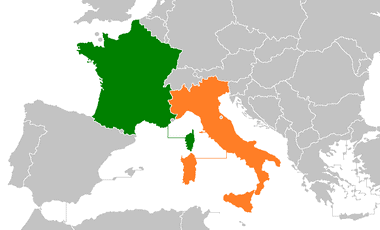
Migration in the EU (France Dumping Muslims In Italy)
On Friday, a French police van was spotted dropping off two presumed migrants in the woods close to the Italian municipality of Claviere near the French border. Rome said it had demanded clarifications from the French authorities. (SPUTNIK NEWS)

What About Violence in the Bible – ISLAM
The Center for Religious Debate (January 2018) – Lecture (7 of 7) by David Wood. This video is part of the Ministry to Muslims 16th Annual Conference
Here is Dorre from RISE CANADA exploring the issue by reading from the Haditha and Quran
